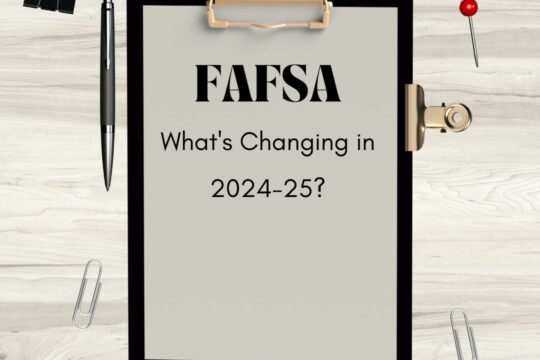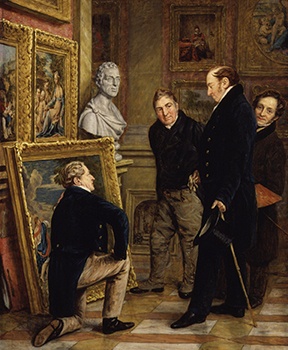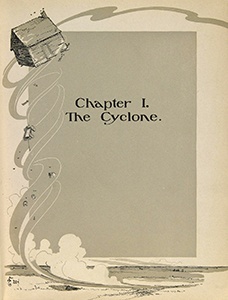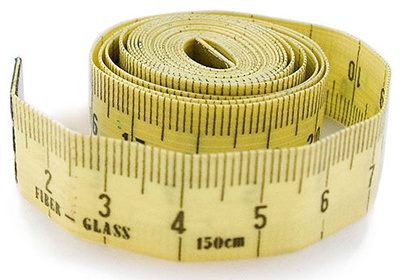
Disclosure: This article contains affiliate links, meaning that when you make a purchase, I earn a small commission. For more information, see the site Disclaimer .

College essay don’ts: 37 Things to Avoid In a college essay
Knowing what not to write about in a college essay is just as important as knowing what to write about!
This post is all about college essay don’ts , including college essay topics to avoid and how not to write your college application essays.
It’s so important to know what NOT to write about in your college application essay. Whether you’re crafting your essay for the Common App or writing shorter college-specific essays, you need to know how not to write a college essay.
Choosing the wrong topic for your college application essays could mean that you don’t get admitted to your dream school or you miss out on scholarship money.
Since you really only have one chance to get it right, you need to know what topics to avoid in your college admissions essays, general college essay don’ts, and what other pitfalls to avoid when writing your college essays.
Essay writing may feel overwhelming and stressful, but knowing what not to do will help you write a great college essay!
What not to write in your college application essay
So you know exactly what not do in college admissions essays, here are 37 college essay tips about college essay don’ts. Follow this advice to know what not to write about in your college essay!
1. Don’t restate the Essay prompt
Start your essay with a hook. Start with dialogue. Start by setting the scene.
Don’t start by restating the essay topic! The reader knows the essay prompts, so just start telling your story.
A great story will immediately grab the attention of the admission officers and make them want to keep reading!
2. Don’t try to be funny in your college admissions essay
There’s a good chance that what you think is funny may not be funny to the admissions officer. And even if your admissions officer thinks it’s funny, the dean of admissions may not agree.
Clever writing that naturally tells a funny story will get you further than trying too hard to make everyone laugh.

3. Don’t swear
You might not mind vulgar language, but many people do. It will come off as tasteless and crass. Simply put, curse words should not be part of your college admissions essay.
4. Don’t just tell the reader what you think
Tell the reader what you did, how you felt, how you changed—not just what you think. Admissions officers don’t want to read about what you think in the abstract.
They want to know what has happened to you in life, how that’s affected you, and what you did as a result.
Write an engaging, interesting story that shows the reader how you’ve grown and what you’ve learned.
5. Don’t try to Appear perfect
It’s okay that your life is messy and you don’t have it all together. It’s okay that you’re not super organized and you don’t know what you want to be when you grow up.
Your college essay doesn’t need to be about how awesome you are (really, it shouldn’t be!). It just needs to be about the real you. Remember, your personal essay for college should be just that—personal!
6. Don’t brag
Your achievements are all listed on your resume.
Writing about how great you are, how you saved the day, or how you’re a hero to others is not going to make a positive impression on the reader.
Leave the bragging to the people who wrote your letters of reference.
7. Don’t emphasize status
Avoid topics that emphasize your financial privilege. Voluntourism trips to aid people living in poverty in far-flung areas of the world is a key example of this.
Don’t write about going on a mission trip to a third world country to volunteer to help the less fortunate and how you learned how privileged you are. Just don’t.

8. Don’t lie
Don’t inflate your accomplishments. Don’t pretend to be someone you’re not.
If you write something dishonest in your essay, it won’t match the other parts of your application. If you were found to have been dishonest when writing your essay, you will not be offered admission at that college.
9. Don’t reveal too much
If you have faced personal challenges, like addiction, mental health struggles, or learning disabilities, those struggles are part of you. You should feel proud of overcoming them.
But your college admissions essay is not the place to share your most deeply personal experiences.
Some college admissions officers may read about your challenges and want to welcome someone with your tenacity and spirit to their campus.
Unfortunately, most admissions officers will read about your challenges and worry that you will face similar issues at their university.
Many colleges choose not accept applicants who have demonstrated past mental health issues. This might not seem fair, but it is reality. Don’t hide your true self or be dishonest, but carefully consider how much you want to reveal in your admissions essay about your private struggles.
10. Don’t write about illegal activities
It’s a safe bet that most colleges do not want to admit students who have a history of participating in illegal activities.
Even if you plan to talk about drug use, alcohol use, jail time, or committing crimes as a way to show growth and discuss lessons learned, illegal activities show a lack of maturity and questionable judgement.
Writing about criminal behavior will not reflect well on you as a candidate for admission. Illegal activities make bad topics for college essays.
11. Don’t summarize your resume
This is one of the biggest college essay don’ts! Your college essay is your opportunity to tell the college admissions office who you really are and what really matters to you.
Your resume already lists your activities, and your transcript details your grades. Your college essay isn’t the place to review these facts; it’s your chance to stand out by telling your story.
12. Don’t tell a general story
Be specific. In fact, be very specific. Focusing on the details of your story will help make your college essay unique so that it stands out.
A good college essay will tell a story that could only have been written by you—no one else.
Instead of telling a biopic story of your life, focus on one aspect of your life—your beliefs, a meaningful experience, a key event—that explains who you are and what matters to you.

13. Don’t write about cliché topics
Avoid writing about the sports victories and defeats. Winning a big game or losing a championship game might mean a lot to you, but sports are common topic and best avoided.
Don’t write about overcoming an academic setback or a romantic breakup.
14. Don’t write about something controversial
You don’t know who will be reading your college admissions essay, and they might not agree with your views on controversial topics.
Moreover, your reader might not appreciate how you approach a sensitive topic. You might appear close-minded and unempathetic.
The last thing you want to do is make the admissions officers reading your essay think you would bring discord to the campus community.
15. Don’t undervalue the small stuff
Great essays can be crafted from the small, personal details of daily life.
Don’t underestimate what interesting essays can be written about your morning routine, your favorite family recipe, your relationship with your sibling, or what you do on a snow day.
In fact, some of the most memorable, best essays have been about a random item, food, or daily routine.
16. Don’t go negative
Criticizing other people, your current school, or anything else will probably just make a bad impression on your readers.
Don’t whine about your life. Negativity says more about you and how you perceive the world around you than it does about anything else. Certainly don’t criticize the college you’re applying to!
If you do want to write about negative experiences you’ve had, quickly move on to discussing what you’ve learned or how you’ve grown as a result of those experiences.
17. Don’t be pompous
Never assume that you know better than your readers or that your approach is the only way.
Don’t tell your reader what they should think. Avoid making generalized value judgements.
18. Don’t go completely off topic
Don’t try to stand out by submitting a poem or creative writing sample.
Write a thoughtful, well-crafted essay about yourself, just like they asked for.
Show that you respect the school admissions committee’s request and can follow directions.
19. Don’t ignore the prompt
College admission essay topics are designed to allow you a lot of freedom in how you answer. Craft a story that tells something about you, within the framework of the prompt.
Just double check that your essay answers the prompt, to make sure you didn’t veer off topic as you wrote and edited the essay.
Also know that you can write about whatever you’d like to . In your essay writing process, if you find that the first prompt you chose isn’t working out, choose a different one and start again.
20. Don’t get the tone wrong
Your college admissions essay is not an expository essay, formulaic and devoid of warmth. Nor is it the right time for you to use all the fancy words you’ve been studying for the SAT.
Your college admissions essay should be engaging, show your personality, and sound like you—a teenager reflecting on your life thus far.
21. Don’t write a trite conclusion
If your essay has done its job, you shouldn’t need to sum it all up for the reader in a neat little final sentence.
If you have shown your reader what you’ve learned, how you’ve grown, or who you are, you don’t need to say it explicitly at the end of your essay.
The conclusion is often the hardest part of the essay to get just right, so don’t worry if it’s hard to find the perfect words. Take a break from writing it and come back in a few days to get a fresh perspective on what you’re trying to say.
22. Don’t wait until the last minute to Write
Start writing your college admissions essay weeks, if not months, before its due. Senior year is an incredibly busy time, so it’s a great idea to get started on your college admission essays as early as possible.
Leave plenty of time to think about what you want to say, revise and edit, and finalize the essay. You’ll be amazed at how your essay can improve if you allow ample time to work on it.
If you’re going to apply early decision or early action, consider starting to work on your main essay the summer after junior year, before your senior year even starts, or early in the fall of senior year.
23. Don’t ignore the word count
You don’t want to write too much or too little. Aim to be within a few words of the word limit. Express yourself clearly and concisely.

24. Don’t repeat your resume
When you’re writing your personal statement essay, don’t just repeat your high school resume.
Your personal essay is your chance to talk about an aspect of your personality or life experiences that can’t be found anywhere else in your college application.
The list of courses you’ve taken (and your grades) tell about your academic interests. So there’s no need to turn your essay into a list of your academic achievements!
Your extracurricular activities show what you’re interested in and how you use your time. If you want to discuss how your extracurricular activities have been formative experiences for you, focus on one particular example. Don’t re-list all your volunteer experiences!
Your personal statement essay should reveal something about you that doesn’t show up in the rest of your application.
25. Don’t write about an “example” topic
If you have read some amazing examples of college essays, and you’re thinking that you could write on that same topic, don’t.
Chances are, if your English teacher pointed out those examples, or you found them via a Google search, every other high school senior (and every school admission officer) has seen those essays too!
Instead, dig deep and write your own amazing personal statement !
26. Don’t copy and paste
It’s completely fine to use the Common App to submit your personal essay to every school on your list (as long as they accept the Common App, of course).
But for each college’s specific essays, tailor your essay to each school. Include specific details about each college that make you want to go there. And make sure your responses are appropriate to the culture of each college.
If you do copy and paste your essays, be sure the essay doesn’t refer to the wrong school!
27. Don’t overuse the thesaurus
Everyone gets stuck using the same words over and over again, and it’s fine to check a thesaurus when you’re writing.
But don’t use big words just in an attempt to impress the college admissions officers. Don’t use words you don’t really understand to try to sound smart.
For a great college application essay, write naturally in your own voice and let your true personality show.
28. Don’t plagiarize
If you’re submitting someone else’s college essay as your own, you’re giving up the chance to share your unique story with the admissions office.
You’re also risking an automatic rejection if you’re caught!
29. Don’t be fake
Use your essay to tell the admissions officers what you want them to know about you.
Don’t try to guess what the admissions officers would like for you to say or try to be someone you’re not.
Don’t invent a tragic event in your past, claim to have done hours and hours of community service you haven’t done, or exaggerate any aspect of your life.
Be authentic, write with your own voice, and craft an essay that stands out from the other applicants.
Simply take your time to craft a thoughtful essay that tells your personal story. Talk about your unique perspective on one specific experience in your life, using your authentic voice.
30. Don’t write a school essay
Your college admissions essay is not a five-paragraph expository essay that you would write for English class.
A winning college essay should have a beginning and an end, but the part in the middle should tell a good story, not make an argument in three points.
The expository essay style of writing might be what your English teacher wants, but it makes for bad college essays.
For a college application, a well-written essay will examine your personal growth, your unique experience in life, and the different perspectives through which you see the world. And you should do this by crafting an intriguing story about a specific moment or experience that was significant to you.

31. Don’t Avoid feedback
If you’re feeling stuck, feel free to ask someone else—a teacher, parent, family member, or friend—to read your essay. Getting feedback on your entire essay is the best way to get a sense of how admissions officers will respond to reading it.
Feedback does not mean that they tell you what to write or how to write it.
Feedback should mean getting input from someone else can help you learn where your essay veers off point or where you need to dig deeper to tell a better story.
32. Don’t skip editing
Please allow enough time to write AND edit your essay. Ideally, you will write a first draft of your essay, then edit it, then get feedback, then edit it again, then write a final draft (then proofread it—see below).
Expect to write at least three or four, and maybe many more, drafts of your college application essay. Your essay will improve with each round of editing.
The essay writing process can be time consuming, but in the end you’ll have a strong essay to share with college admissions offices, so it will be worth it!
33. Don’t overedit
What? Didn’t I just tell you to edit?
Yes, absolutely. Just be sure that after you’ve shown your essay to trusted readers and you’ve made your edits, your story still remains.
The essay should still have your voice and should tell the story you want to tell.
34. Don’t skip proofreading
After you make your edits and write a “final draft,” you might want to click send and submit your essay. But not so fast!
Take time to do a final proofread of your essay.
Better yet, ask a teacher, college counselor, or someone with excellent grammar and spelling skills to proofread your essay. Having a fresh set of eyes on your essay will help ensure it is error-free.
35. Don’t just rely on Spellcheck
It’s really important to have an actual person proofread your essay.
Spellcheck and other editing software won’t necessarily catch grammar errors, typos, or poorly structured arguments.
It’s always a good idea to trust the final proofread of your essay to a person, rather than technology.
36. Don’t submit your essay at the last minute
You never know when a website will get glitchy!
Don’t take a chance that the Common Application or an individual university’s website won’t act up at a crucial moment. Do your best to upload your college essay at least a day before it’s due!
The admissions process is stressful enough without adding in technical errors. Don’t risk missing the deadline by procrastinating!
37. Don’t submit an incomplete essay
When you’re in the Common App website or a specific college’s application portal, and you attach your admission essay, scan it quickly before hitting the submit button.
Be sure you attached the correct file or that the complete essay transferred when you copied and pasted it into the online form.
It won’t matter if you write a great essay if you don’t submit it correctly!
Final thoughts on college essay don’ts and what not to write in your college essay
Personal essays are a key part of the college application process. College admissions counselors, especially at smaller colleges, use college essays to learn more about the applicants applying for admission at their school.
An amazing college essay might not make up for bad grades or a lack of extracurriculars, but a poorly written essay may push your application into the reject pile. This is especially true now that test scores are usually optional.
Successful essays allow admissions officers to learn about your personal qualities, your take on global issues, and how you might contribute to campus life.
Writing a great college admission essay is the most important thing you can do to make a great impression on the admissions team.
After looking at so many college applicants, test scores, GPAs, and awards all blend together. It’s the personal essays that stand out when admission counselors are deciding which high school seniors will be accepted.
So, it’s worth taking your time to write the best college admissions essays you can.
By avoiding all these college essay don’ts, you’ll know what not to write in your college essay.

How to Write an Amazing College Essay: 25 Tips
Why you’re writing a college essay, how to choose a topic for your college essay, how to write an amazing college essay, how to edit your college essay, and how to make your college essay stand out.

9 tips for How to Write a College Essay That Stands Out
Are you wondering how you’ll manage to write a college essay that stands out from all the other admissions essays? How do you even start writing a standout college essay? If you’re a high school senior…

Can I use the same essay for different colleges?
Can you submit the same essay to different colleges? Yes, no, and maybe. You have so many essays to write for college applications! There’s your main college admissions essay, or the personal statement. There are college…
Graduate of Brown University, higher ed professional, and mom of three. Sharing everything I’ve learned about college with you.
Similar Posts

Finding the right college fit: Pick the Best College for You
How to choose a college that’s the right fit for you. Find a college where you can thrive!

Using the same essay for different college scholarships
Is it possible to use the same essay for different college scholarship applications? Yes! With a bit of careful…

College Visits for Juniors: A Perfect Time for Campus Tours
Junior year is the perfect time to begin visiting colleges. These tips for planning college visits for juniors and what juniors should do on college visits will help you make the most of each campus tour!

How to Email a College Admissions Officer: Samples & Tips
Thinking about emailing your college admissions officer and wondering what to say? There are many reasons you may need…

How to Choose a Unique College Essay Topic
Learn how to write a unique college admissions essay that makes you stand out.

At What Age Do You Go To College?
Can you go to college at any age? Are you ever too young to go to college? Or can…
- [email protected]
- (650) 338-8226
Cupertino, CA

- Our Philosophy
- Our Results
- News, Media, and Press
- Common Application
- College Application Essay Editing
- Extracurricular Planning
- Academic Guidance
- Summer Programs
- Interview Preparation
Middle School
- Pre-High School Consultation
- Boarding School Admissions
College Admissions
- Academic and Extracurricular Profile Evaluation
- Senior Editor College Application Program
- Summer Program Applications
- Private Consulting Program
- Transfer Admissions
- UC Transfer Admissions
- Ivy League Transfer Admissions
Graduate Admissions
- Graduate School Admissions
- MBA Admissions
Private Tutoring
- SAT/ACT Tutoring
- AP Exam Tutoring
- Olympiad Training
Research Programs
- Science Research Program
- Humanities Competitions
- Passion Project Program
- Ad Hoc Consulting
- Athletic Recruitment
- National Universities Rankings
- Liberal Arts Colleges Rankings
- Public Schools Rankings
Acceptance Rates
- University Acceptance Rates
- Transfer Acceptance Rates
- Supplemental Essays
- College Admissions Data
- Chances Calculator
- GPA Calculator
National Universities
- College Acceptance Rates
- College Overall Acceptance Rates
- College Regular Acceptance Rates
- College Early Acceptance Rates
- Ivy League Acceptance Rates
- Ivy League Overall Acceptance Rates
- Ivy League Regular Acceptance Rates
- Ivy League Early Acceptance Rates
Public Schools
- Public Schools Acceptance Rates
- Public Schools Overall Acceptance Rates
- Public Schools Regular Acceptance Rates
- Public Schools Early Acceptance Rates
Liberal Arts
- Liberal Arts Colleges Acceptance Rates
- Liberal Arts Colleges Overall Acceptance Rates
- Liberal Arts Colleges Regular Acceptance Rates
- Liberal Arts Colleges Early Acceptance Rates

9 College Essay Topics to Avoid at ALL COSTS

By Eric Eng

What makes a good college essay? It’s a question many high school seniors ask while going through the application process. A winning college essay engages admissions officers and shares with them the student’s identity and personality, painting a picture that goes beyond grades and test scores—compelling the reader to become an advocate for the student’s admission. Learn the college essay topics to avoid!

Essays are a critical part of the college admissions process. A fantastic essay can make your application much more likely to be accepted. Likewise, a bad college essay can spell disaster for your chances of getting into the university of your choice.
So, how can you make sure your college essays stand out? Sometimes talking about the mistakes you should avoid is the best way to answer this question. Here, we’ll take a deeper look at which college essay topics to avoid and some helpful suggestions to make sure your essays stand out amongst the competition.
College Admissions Essay Topics to Avoid
Summary of your academic and personal achievements..
As you transition into college, you become more and more familiar with resumes. They’re the preferred way of showing your qualifications, experience, and skills to employers and schools. Naturally, you might assume that this format is a great choice when writing college essays. However, there’s one major problem: resumes are incredibly dry and boring.
That’s why you’ll see most employers request a cover letter in addition to your resume. Similarly, admissions officers aren’t going to be interested in a regurgitation of what you’ve already outlined on your standard application. Not only is it repetitive, but it’s also very common when students don’t know what to write.

Instead of writing a summary of your personal and academic achievements, focus on the one that stands out above all the rest in terms of importance and impact. Talk about how it affected you, why it helped you become the person you are today, and how it changed your thinking. This type of essay topic is effective for discussing complicated experiences or ones with an incredibly interesting background. For instance, maybe you participated in an extracurricular club that most people don’t even know exists. Or maybe the way you developed a passion for science has a unique and unusual story behind it.
Although you’re not beholden to one topic, the goal is to be detailed and specific rather than briefly mentioning many different accomplishments. Admissions officers will prefer this, and your topics will have a better chance of sticking out from the flood of applications.
A sports-related obstacle or success.
Everybody’s been told by coaches, parents, and even fellow students that lessons learned through playing a sport are applicable to everyday life. While there is certainly some truth to this statement, it’s a topic that’s been covered countless times in pop culture. You can probably think of a dozen movies off the top of your head that had to do with a struggling student-athlete who learns important life lessons from overcoming obstacles. If you’re going to write an essay about sports, you’ll need to tiptoe around the clichéd landmines presented by the following topics:
- The camaraderie you felt with teammates (too obvious)
- Overcoming obstacles (too common)
- The excitement of winning (doesn’t show enough depth)
- The sadness of losing (doesn’t show enough depth)
- Never giving up (too common)
Sports essays are so common that admissions officers are able to anticipate what’s coming next. And there’s nothing worse than having a predictable essay. It comes off as unoriginal and forgettable. Instead of talking about how you overcame a leg injury by never giving up and continuing to fight until it got better, you could relate this challenge to something completely unassociated with sports.

Maybe you decided to take up a new hobby during your downtime and the injury was how you discovered a new passion. It’s all about being original and unexpected. Sports is a common topic that you should avoid unless you have something truly unique to say.
An immigration story
Out of any other country in the world, the United States has, by far, the largest immigrant population. While this is a wonderful statistic, it doesn’t bode well for immigration-related college essays. Why? Well, because there are tens of millions of other people with similar stories. In general, you want to avoid something college admissions officers have already read hundreds of times before, including topics related to:
- Adapting to a new culture
- Developing new and foreign habits
- Acquiring a second language
- Finding it difficult to fit in
- Missing home
In order to make immigration-related essays work while avoiding common topics, you’ll have to make them incredibly unique and personal. Similar to writing about your achievements, you should make an immigration story focused and specific. Times of struggle and conflict are always incredibly intriguing. As these are common themes within more mundane immigration-related essays, you can make them more interesting by giving details about one specific scenario or challenge.

For example, you could talk about how you were struggling to fit in at a new school because of the language barrier. But despite this, you were able to make friends by joining an obscure club or extracurricular activity. You can also write about a unique experience you had when coming to the United States. Either way, be sure to make it personal, unique, and detailed.
Tragedies you’ve experienced
Although tragedies are often very formative, they’re also universal. In other words, since everyone experiences difficult circumstances, it’s a common subject for college essays. Additionally, one of the greatest downfalls of these essays is the focus on the tragedy rather than the way the subject was affected. If you’ve experienced a difficult or tragic event in your life that’s played a major role in shaping who you are today and you want to include it in your college essays, you can.
But you need to do it with caution. When done incorrectly, this essay subject can come across as unoriginal and begging for sympathy. You need to highlight the parts of the story that are unique while not focusing too much on the tragedy itself. For example, if you recently lost a loved one due to a chronic illness, you shouldn’t spend too much time talking about the loss itself. Instead, you want to highlight how this experience impacted you. How have you had to grow and change as a result?
Maybe you decided to become an advocate for this illness, and you’ve been able to raise a lot of money to be put towards research. Start by thinking of what tragedies you’ve experienced but don’t stop there. Think about how you’ve been impacted and make this the subject of the essay.
Overcoming a challenging course.
There are a number of reasons why overcoming a challenging course doesn’t work well as a college essay topic. While it’s not the worst choice a student can make, it’s definitely a common choice. And if you’re applying to an Ivy League school or any high-level university, there’s a good chance most applicants faced challenges in their difficult high school courses but ended up succeeding anyway. Furthermore, the primary characteristics you’d likely introduce are already covered in your letters of recommendation. For example:
- Intellectual curiosity
- Determination
- Due diligence
- Organization
If your do want to mention how a difficult class impacted you, make sure to get as specific as possible. And don’t focus too much on the course. Keep in mind that college admissions experts are only interested in you when reading your essays. They already know everything about your high school curriculum and your overall academic performance.
Maybe a specific book in your AP English Course inspired you to start writing your own book. Or perhaps a difficult project in history class helped you develop a passion for a very specific and unique time in history. Maybe a class you thought would be easy, turned out to be very difficult. The classes you take are temporary, but the way they can impact you might be permanent. Focusing on these effects will take your essay much further.
Someone you look up to
One of the most popular college essay topics to avoid is writing about someone you look up to or admire. It’s not that this topic automatically results in a bad college essay. It’s simply that so many people rely on this topic because it’s common, well-rehearsed, and easy.
Everyone can think of someone who inspires them to be a better person, to work harder, and to dream bigger. Whether that’s a family member or someone famous, the answers are pretty mundane. Yes, it’s probably undoubtedly true that your parents, grandparents, aunts, uncles, and even your siblings inspired you in some way. But that’s true for most people.
When it comes to famous people, the answers become even more obvious. Albert Einstein, Abraham Lincoln, Mahatma Gandhi, Nelson Mandela, and Dr. Martin Luther King Jr. are just a few of the most popular names.
Although we encourage students to avoid this topic, you can make it work by focusing the vast majority of the essay by talking about how you’ve been influenced positively by the individual you look up to. Spending too much time on why you admire them will end up making your essay less interesting and, as a result, more forgettable.
A volunteer experience
College admissions officers love to see students who dedicate their free time to good causes. However, writing an essay about this can be difficult. Even worse, these topics can make applicants seem pretentious and full of themselves. The main problem with this topic is that students tend to talk too much about what they did, how they made a positive change, and how they were also positively impacted.

This series of events – student doing something charitable, the gesture having a positive impact, and the student feeling good about it – is a trap. It sounds great, looks great, and might even feel great. But it’s been done countless times before. If you really want to use this topic, we strongly advise you to switch it up and make it more interesting by talking about how it challenged you. Maybe you had some prejudices that were shattered as a result of the volunteer experience. You can talk about how you grew from the experience without making it come across as pretentious and self-serving.
Moving to a new home
Just like immigration-related topics, talking about moving across the country on your college essays can come across seem like a cliché because millions of people experience the same thing every year. While some people undoubtedly have a tougher time making the adjustment, the negative experiences associated with moving are common enough to make this a topic you should generally avoid. If you really think you’ve got something unique to say related to moving, make sure the moving aspect is just a background theme. Don’t focus too much on it.
Here are a few examples of essay topics within this vein that might actually work if executed properly.
- Maybe you were considered the unathletic nerd at your old school. And, when you transferred to a new school after moving, you made a concerted effort to shed this persona by trying out for various sports and becoming a well-rounded person overall.
- Perhaps you moved to a different environment where your personal views or beliefs were challenged. Whether you ended up learning more about views you once disagreed with or you reaffirmed what you previously thought, this experience is an interesting topic which places the move as an ancillary detail rather than the main topic.
Relationships and breakups
We’ve stressed the importance of writing college essays that are personal. Not only does this ensure they’re unique, but it’s also a surefire way to get admissions officers to take notice. However, there is such a thing as too personal.
Generally speaking, anything that falls into the romance department is a little too much information to be a suitable topic for college admissions essays. While we’ve been able to give you some solutions for taking the other questionable topics in a more unique direction, this subject is much harder to redeem. As a result, we recommend students avoid it altogether.
Additional tips for making your college essays stand out
We’ve provided you with some college essay topics to avoid. However, it’s not just about staying clear of these subjects or, at the very least, the characteristics that make them problematic. In order to make your college essays stand out, you’ll still need to leverage some other strategies. Here are a few do’s and don’ts to help get you started.
Don’t use vulgar language.
If you’re wondering if you can curse in a college essay, the answer is technical “yes.” However, we highly recommend against it. This can come off as abrasive and inappropriate. While it might fly with some admissions officers, the problem is that you can’t control who reads your essay. That’s why it’s best to avoid cursing altogether.
Avoid common essay topics (if you can).
We’ve dedicated this whole piece to help you avoid coming across as too common on your college essays. However, the best way to do this is to avoid these topics altogether. However, we understand why they’re popular. So, if you must rely on one of these topics, find ways to make it unique and personal – which brings us to our next point.
Focus on you, not the topic.
When writing a college essay, too many students focus on the topic rather than the most important subject: you! For example, if you fell in love with a subject because of a passionate teacher, you should spend your essay talking about how you changed and grew through the process rather than what’s so interesting about the subject. Never forget that you should be the most interesting subject in your essays.
We can help you nail your college essays
Your college essays are a critical part of determining whether or not you are accepted into the college of your choice. Knowing about the essay topics to avoid is an important part of nailing your college essays, but there’s more to it than that.
Fortunately, AdmissionSight offers personalized essay editing services to help you make the most of your college essays. We’ll show you the mistakes to avoid along with some strategies you can use to improve your writing. You’ll also learn what college admissions officers are looking for, specifically from the college to which you’re applying. C ontact us to schedule your free consultation.
Want to assess your chances of admission? Take our FREE chances calculator today!

Why College Admissions Isn’t Perfect

US News Rankings

The Personal Statement: The Holy Grail of College Admissions

The Modern Day 4.0 and 1600 SAT Score Student Is No Longer Impressive

The Competitive Nature of College Admissions for Asian Americans

The College Application

Our Comprehensive Approach

Ivy League Schools

How Early Should You Prepare for College?

Featured in US News & World Report Best Colleges Publication

Congratulations to AdmissionSight Students and their Acceptances!

College Rejection

College Rankings

College Consultants Could Make A Difference

College Admissions Scandal and Higher Education

Ivy League Rankings 2024

10 Humanities Programs for High School Students

Where is Georgia Tech located?

How to Qualify for National Merit Semifinalist 2025

Where Is Harvey Mudd Located?

Where is the University of Virginia located?

Where is Wake Forest located?

Where is the University of Michigan located?

How to Update Caltech After Submitting Your Application

How to Update Yale After Submitting Your Application

What Are the Score Choice Policies at Top 50 Universities?
How to update mit after submitting your application.

Where is Carnegie Mellon University located?

How to Apply to LaunchX

How to Update UPenn After Submitting Your Application

Where is Georgetown University located?

How to Update Princeton After Submitting Your Application
Leave a comment cancel reply.
Your email address will not be published. Required fields are marked *
Save my name, email, and website in this browser for the next time I comment.
Recent Articles

10 Humanities Programs for High...

How to Qualify for National...

Where is the University of...

How to Update Caltech After...

How to Update Yale After...

What Are the Score Choice...

How to Update MIT After...
Sign up now to receive insights on how to navigate the college admissions process..

Admissions Counseling
- Academic & Extracurricular Profile Evaluation
Copyright © AdmissionSight 2024
Privacy Policy - Terms and Conditions
15 College Essay Topics To Avoid and Why | Tips & Examples

Reviewed by:
Former Admissions Committee Member, Columbia University
Reviewed: 4/26/24
Entrance essays are an integral part of your college application. Beyond your test scores, GPA, and other achievements, your essays are essentially the heart of your application. Essays help admissions committees get to know the person behind the stats.
While your essays showcase your adept writing skills , they also uncover your personality, voice, background, experiences, and more.
You can choose your essay topics when you apply through the Common Application, Coalition Application, or any other online application portal. However, there are some topics you should avoid, or at the very least, slightly steer your narrative in another direction.
Below we’ll walk you through why it’s best to avoid some topics in your college entrance essays and a brief overview of some common topics to steer clear of or adjust the trajectory.
Why Should You Avoid Certain Topics for College Entrance Essays?
Your college entrance essay is your chance to make a lasting impression on admissions officers. It's a way to reveal who you are as a person, separate from your grades and test scores. But some topics can backfire, hindering your application instead of highlighting your strengths. Starting an essay topic right can be your ticket into your desired school.
Adam Sapp , Assistant Vice President and Director of Admissions at Pomona College, said, “The essays are important in part because this is a student's chance to really speak directly to the admissions office.”
What Do Colleges Look For in College Essays?
When it comes to college essays, colleges are on the hunt for a few key things. They want to get to know you beyond just your grades and test scores, so your essay is your chance to shine. Here's what they're generally looking for:
- Your Personality : Colleges want to see your personality come through in your essay. They want to know what makes you tick, what you're passionate about, and what kind of person you are. This is your chance to let your individuality shine.
- Writing Skills : Of course, colleges also want to see that you can write well. They'll be looking at your grammar, punctuation, and overall writing style. So, make sure your essay is well-structured and free of errors.
- Your Story : Everyone has a unique story to tell, and colleges are interested in yours. They want to know about your experiences, the challenges you've faced, and how you've grown as a result. Share something personal and meaningful.
- Why You're a Good Fit : Colleges also want to see that you've done your homework. They want to know why you're interested in their school specifically. What do you like about their programs, campus, or culture that makes you a good fit?
- Thoughtfulness : Your essay should show that you've put thought into your future and your academic goals. They want to see that you're serious about your education and have a clear sense of purpose.
- Creativity : While you want to be thoughtful and serious, don't be afraid to be creative and unique in your writing. A fresh perspective can make your essay stand out.
- Impact and Growth : Colleges love to see how you've made an impact in your community or how you've grown through your experiences. Share any leadership roles, volunteer work, or challenges you've overcome.
- Adherence to Guidelines : Finally, make sure your essay follows the specific guidelines provided by the college. Don't go over the word limit or ignore any prompts they've given.
Overall, colleges are looking for an authentic, well-written essay that gives them insight into who you are as a person, why you're interested in their school, and how you can contribute to their community. So, be yourself, put some thought into it, and don't forget to proofread!
15 Topics to Avoid in Your College Essays

The perfect college essay demonstrates your growth, character, and fit with the school. To drive the point home, choose an essay topic that has proven results . Before you start brainstorming, know there are many college essay topics to avoid altogether.
Some college essay topics are cliche, and some are risky, uncreative, or just downright inappropriate. We’ll talk you through all the topics to avoid in college essays.
1. Inappropriate Topics
Some people think rolling with an inappropriate topic and shocking the admissions committee is a great idea, but it’s not. Stay far, far away from anything to do with illegal activity, alcohol, substance use, and anything else following these themes.
You don’t set yourself up for success using topics like these. The admissions committee could cast judgment, and you’re certainly not putting your best foot forward.
The only time something like this may be appropriate is if you volunteered at a needle exchange or harm reduction facility. Even then, you’d want to delve into the topic with tact and grace or consider choosing another topic altogether.
Why Is This A Bad Topic For a College Essay?
Inappropriate topics like these are ill-advised because they can portray the applicant in an extremely negative light to admissions officers. Writing about illegal activities or substance abuse raises major red flags about the applicant's judgment and ability to make good choices. The admissions committee will likely view such topics as a lack of maturity and responsibility - qualities that are essential for college students.
2. A Rehash of Your Activities List and Transcripts
Essentially summarizing your achievements won’t make for a compelling narrative. The admissions committee already has access to your activities list and transcripts, so there’s no need to reiterate all of the items you wrote down.
Summarizing these documents is a mistake because it won’t add anything else to your application. Remember, you want to tell the admissions committee something they don’t already know.
If you want to write about a specific extracurricular, get close and personal with just one. Select the most meaningful activity or the one you were most passionate about and delve beyond the surface. Focusing on one activity can make for a successful essay if it shows your growth, positive character traits, or personality.
Rehashing information from other parts of the application is a wasted opportunity for the personal essay. The essay is meant to provide new insights into the applicant's personality, values, and experiences that transcripts and lists cannot convey. Simply recapping accomplishments fails to reveal anything meaningful about the applicant as an individual.
3. Relationships, Romance, and Breakups
As much as you may be head over heels for your partner, or scraping the bottom of ice cream tubs after a breakup, don’t turn these experiences into essay topics. It sounds a little harsh, but your love life doesn’t matter to the admissions committee. Besides that, love is a gigantic and complex topic not well-suited to a college application essay.
The other problem with this topic is it takes the focus off of yourself and onto another person. You want to ensure your essay is all about you . That's the person most important to the admissions committee, so put yourself first.
Romance and relationship drama makes for poor college essay topics because they are too personal and not relevant to the applicant's qualifications for admission. Admissions officers are focused on evaluating the applicant's academic potential, not their romantic endeavors. Essays on this topic come across as immature and could raise doubts about the applicant's ability to prioritize their studies over their love life.
4. Writing About Your Hero
Writing a story about your hero sounds nice in theory. However, it’s a cliche college essay topic to avoid. Like writing about your sweetheart (or ex-sweetheart), writing about your hero takes the spotlight away from you and directs it to someone who isn’t applying to college.
If you wanted to write about your hero in the first place, why? What did they inspire in you, or what experiences did you go through together? How did those experiences or “a-ha” moments make you a better person or a better candidate? Cut through the fluff and focus the lens back on yourself.
The problem with writing about a hero is that the essay becomes more about glorifying someone else rather than providing insights into the applicant's own life experiences, growth, and motivations. Admissions committees want to learn about the applicants themselves, not read an ode to someone else's accomplishments. The personal statement should maintain a strong focus on the applicant as an individual.
5. The Sports Story
Ah yes, the classic sports story. These essays typically follow different plots. Maybe you scored a point in the last moment, or your team won a championship game against all odds, or you wanted to showcase your training regimen.
Most people will tell you to stay away from sports topics altogether. If you are dead-set on writing about your sports experiences, don’t let your essay fall into cliche and predictable patterns.
Approach your sports story from a creative and new angle. Ask yourself the following questions:
- How did the skills you learned from sports impact another experience?
- Did being team captain give you the leadership skills you needed to succeed in leading an unrelated project?
Think critically about your experiences, and you could have a stellar essay topic on your hands to start writing .
Laura Stratton , Director of Admission at Scripps College in California, recounts an exceptionally well-written sports essay about a student benched in a final game.
“The self-awareness the student showed of being a good team member and showing up for her teammates, and continuing to be positive even though it wasn't the personal experience that she wanted to have, said a lot about her character and about the type of roommate she would be or classmate she would be.”
Always look for a fresh angle in your sports story if it’s the one you want to tell.
Sports stories are often cautioned against because they tend to be cliché and unoriginal. There are only so many ways to rehash the "big game" narrative before it becomes stale and uncompelling. Unless the applicant has a truly unique angle, a sports essay runs the risk of blending in with other applications and failing to make a memorable impression on admissions officers.
6. Tragedies
While tragedies you’ve faced can be formative experiences, this may be a college application essay topic to avoid. Some people aren’t comfortable sharing the intimate details of a tragedy they’ve faced, and that’s okay. Similarly, some people aren’t comfortable reading about the personal details of someone else’s tragedy.
However, if a tragic event such as the death of a loved one is imperative to your narrative, you can carefully craft a story including it. How was the tragedy an index event that impacted your thoughts or actions?
Tragic events require an extremely delicate approach in college essays. There is the risk of either oversharing disturbing details that make readers uncomfortable, or glossing over the tragedy too briefly to give it proper context.
Admissions officers may also worry that an applicant who has experienced major trauma is not in a good mindset for the rigors of college life. Overall, tragedies are very personal topics better avoided unless absolutely essential to the narrative.
7. Highly Personal Topics
Like tragic events, highly personal topics don’t always make the best essays . Examples of highly personal topics include past trauma, severe illnesses, and injuries. To fully explore the details of their stories, writers may get too graphic or go into way too much detail about these situations.
If a highly personal topic is central to the story you want to tell, ensure you handle your narrative delicately. It’s okay to briefly share these anecdotes as long as you don’t go into way too much personal detail.
Similar to tragic events, highly personal topics involving trauma, health issues, or other very private matters should be avoided unless directly relevant to the main narrative. Oversharing disturbing or graphic personal details can make readers uncomfortable and detract from the overall essay.
8. Controversial Topics: Politics, Religion, and More
Controversial topics are typically college essay topics to avoid. The problem with these is that not everyone will share the same views, and you may open yourself up to judgment from the admissions committee members who don’t.
Of course, admissions committees don’t make decisions based on criteria such as what political party you voted for or whether or not you attend a place of worship consistently. These topics work against you. Instead of showing why you’re the right candidate, writing about politics and religion can feel like you’re trying to convince the committee your views are correct.
The only time you may want to write about a polarizing topic like religion is if you plan to attend a school where religion is a part of its heritage, founding, and teaching, such as Notre Dame University.
Touching on controversial topics like politics or religion is inadvisable because it injects personal opinions and beliefs that may not align with the admissions officer reading the essay. This creates the potential for bias and judgment based on the applicant's stance on the issue.
The personal statement should aim to unite readers around the applicant's strengths, not divide them over polarizing debates.
9. The Confessional
If you want to craft a narrative about an obstacle you’ve faced or to share your growth throughout your high school years, avoid “the confessional.”
You may feel guilty about something you’ve done that no one else knows about: it’s probably best not to share these confessions with the admissions committee. Your confessional probably won’t paint you in the light you were hoping for.
Instead, focus on an experience where something or someone changed your perspective or how you navigated a challenging situation in the best way you could. These anecdotes show growth, adaptability, and the willingness to change your perspective when offered new information.
Confessional-style essays delving into past mistakes, guilt, or skeletons in the closet are cautioned against because they can very easily misfire. What the applicant intends as a narrative of growth may come across as a laundry list of poor choices and immaturity. Admissions officers want to see the present, best version of the applicant, not dwell on their past missteps.
10. Throwing the Box Away
It’s one thing to think outside the box, it’s another to throw the box out entirely and send it downriver. Sometimes students think an ultra-creative essay means going for an entirely new format, like writing a song or poem. While it might be more fun, it could put you at a disadvantage.
Being creative doesn't mean you have to reinvent the wheel with your essay. It means you can describe an anecdote or situation using detailed description and vibrant imagery. Pour your creativity into your word choice and how you set up a scene, and it’s sure to strike a much better chord with the admissions committee than a poem or song would (pun intended).
While creative writing is encouraged, completely disregarding traditional essay formatting and structure can be a gamble. Admissions officers have to read thousands of personal statements, so presenting the information in an unconventional way like a poem or song may just come across as gimmicky. It's better to channel creativity into excellent writing within the bounds of a standard essay format.
11. The Service/Mission/Class Trip
One of the problems with these essay topics is that everyone who has had the opportunity to participate in one of these trips wants to write about them. The second problem is that these narratives tend to follow similar themes and that students tend to write about the trip as a whole.
If your heart is set on sharing an experience from a trip, pick one meaningful moment to focus on. Did you meet someone on your trip that impacted your character or beliefs? Did you face an unexpected challenge that made you need to rise to the occasion?
Whitney Soule , Senior Vice President and Dean of Admissions and Student Aid at Bowdoin College, said, “Overuse of a topic doesn’t make it a bad topic.” Remember, honing in on one element of your trip can help differentiate your essay and show more depth than just glazing over your excursion.
Service trips, mission trips, or class trips are very common sources for college essays, which makes standing out difficult. Simply recounting the trip itself in a play-by-play fashion is unoriginal and doesn't reveal much about the applicant's unique perspective or growth. To make this topic work, the applicant needs to go beyond just describing the trip and pinpoint specific moments or interactions that were transformative.
12. Something That Happened Way Before High School
Many of our most formative experiences can happen long before reaching high school. While these moments are important to you, writing about something that happened to you way before high school may not make the best admissions essay. Your experiences before high school don’t show the admissions committee who you are right now; they show who you were before.
If you want to pick out a story about your childhood, ensure you relate it to high school or current events. This way, you get to tell that story, but you make it relevant to the person you are today.
For example, if both your parents are scientists and you used to put on their lab coats at five years old, relate it to how your love of science grew over time to lead you to your school choices now. Don’t just stick to the first part of the story.
While childhood experiences shape who we become, dwelling too much on events from the distant past can make the essay feel irrelevant to the present-day applicant. Admissions officers want to get a sense of the applicant's current identity, maturity, and mindset - not the person they were as a young child.
13. Your Privilege or Luck
If you’ve lived a privileged life or you’ve had stroke after stroke of good luck, focusing only on these elements isn’t in your best interest. It can come across like you haven't experienced any challenges or have a skewed vision of how the world works.
It’s fortunate if you’ve lived a reasonably trouble-free life thus far. However, dig deep and look for something beyond the surface of sunshine and rainbows—admissions committees like some vulnerability and honesty.
Essays that are overtly privileged or present a life of constant good fortune can come across as out-of-touch or lacking perspective. Admissions officers want to see that applicants have dealt with obstacles, learned from setbacks, and developed resilience.
An essay that reads as completely devoid of any challenges or hardships may raise questions about the applicant's ability to cope with future difficulties in college.
14. Anything That Involves Lying
You would think this one is obvious, but many people feel like their stories just aren’t good enough to tell, so they fabricate elements. The bottom line is you should never lie about anything in your college admissions essays . Admissions committees can smell insincerity. That’s not a personal quality you want to communicate to them.
Rest assured that you don’t need to have written a dramatic story filled with twists and turns. Excellent college essays can revolve around mundane topics. Write your truth, and don’t fudge any of the details.
Lying or embellishing details in a college essay is a surefire way to undermine the entire application. If caught, it demonstrates a serious lack of integrity that will disqualify the applicant.
Even if the lie slips through, the essay will likely come across as inauthentic. Admissions officers can usually spot when an applicant is exaggerating or fabricating stories. Honesty is always the best policy for personal statements.
15. Risky Topics Like Pointing Out a School’s Shortcomings
This type of writing is uncommon for a reason: it won’t work. Some students may think pointing out a school’s shortcomings and how their attendance may help bridge them will give their essay the shock factor they need to stand out.
Unfortunately, you’ll stand out in the wrong way. As a general rule, you probably shouldn’t rip apart the school you want to attend.
A better option is to describe how your acceptance will add to the school and campus culture. A response like this may be better suited to a “Why this school?” supplementary essay, but schools want to admit students who contribute to its culture and add a unique perspective to classrooms.
Criticizing or calling out perceived flaws in the school is an extremely risky move that is very unlikely to pay off. It comes across as arrogant and presumptuous for an applicant to claim they can single-handedly fix an institution's issues before even being admitted.
This tactic shows a lack of respect for the school and its existing community. Applicants are much better off highlighting their strengths as an additive force.
How To Write a Cliche College Essay That Works? (If You Really Want To)
While certain topics like inappropriate content, rehashing accomplishments, sports stories, and personal topics are generally cautioned against for college essays, there are ways to approach them thoughtfully if you insist on using them.
The key is to find a unique angle that shows personal growth, adaptability, vulnerability, or how the experience shaped you as an individual.
Rather than just recounting events, analyze how a relationship taught you empathy, how a tragedy changed your perspective, or how being a team captain demonstrated leadership.
Handle sensitive topics delicately without oversharing graphic details. Above all, ensure your narrative maintains an inward focus on your own insights, strengths, and fit for the university rather than distracting from your candidacy.
With creativity and self-awareness, even cliched topics can make compelling essays that showcase who you are.
Check out our College Essay Examples Database for a detailed look at successful essays.
Do you still have questions about college application essays? We've got answers! Check out this FAQ section to find the information you need to ace your application.
1. Are There Any Sensitive Personal Experiences I Should Avoid Discussing in My Essay?
Avoid overly sensitive topics that might be uncomfortable for admissions officers. Instead, choose experiences that demonstrate personal growth and resilience.
2. Are There Any Topics That Might Come Across as Boastful or Arrogant in a College Essay?
Avoid bragging about achievements or sounding self-important. Focus on how experiences shaped your character and values.
3. How Can I Identify Potentially Overdone or Unoriginal Essay Topics?
Think about common themes like sports victories or mission trips. To stand out, find a unique angle or a more personal way to approach these topics.
4. What Are Considered Cliché Topics in College Application Essays?
Cliché topics include sports victories ("the big game"), mission/volunteer trips, and overcoming a generic obstacle. Seek a fresh perspective to make these experiences more impactful.
5. Should I Avoid Discussing Controversial Political or Religious Beliefs in My College Essay?
Yes. It's generally best to avoid divisive topics. Focus on sharing experiences that highlight your values, problem-solving skills, and open-mindedness.
Final Thoughts
There are many cliche essay topics to avoid and some inappropriate to share with admissions committees. Your college admissions essays should always carry a professional yet conversational tone, and you shouldn’t write about anything that would be detrimental to your application.
Even though the above list is filled with topics to avoid in college essays, it doesn’t mean you can’t tweak them to make them more appropriate and a better story to tell. Your writing should authentically show your voice and character. Put your best foot (and best writing) forward, and you’re sure to produce stellar pieces of writing!
Get A Free Consultation
You may also like.
.jpg)
The Best Test-Optional Colleges

Do Colleges Look at High School Attendance?

Watch CBS News
10 topics to avoid in a college admission essay
By Lynn O'Shaughnessy
June 21, 2013 / 8:12 AM EDT / MoneyWatch
(MoneyWatch) For students who are applying for college, one of the scariest parts of the admission process is writing the dreaded essay.
A common mistake that students make when tackling their college essays is to pick the wrong topics. It's a huge turn off, for instance, when applicants write about their sports exploits or their pets. I asked Janine Robinson, who is the creator of a wonderful website called Essay Hell and the author of an excellent ebook entitled " Escape Essay Hell ," to identify those essay topics that teenagers should absolutely avoid.
- 5 tips for writing a winning college essay
- 5 myths about getting in and paying for college
- 10 great opening lines from Stanford admission essays
Here are Robinson's college essay no-no's:
1. Listing accomplishments. You might be the most amazing person on the planet, but nobody wants a recitation of the wonderful things you've done, the people you've encountered and the places you've visited.
2. Sports. Do you know how many millions of teens have written about scoring the winning goal, basket or run? You definitely don't want to write about your winning team. And nobody wants to read about your losing team, either.
3. Sharing how lucky you are. If you are one of the lucky teenagers who has grown up in an affluent household, with all the perks that goes with it, no need to share that with college admission officials. "The last thing anyone wants to read about is your ski trip to Aspen or your hot oil massage at a fancy resort," Robinson observed.
4. Writing an "un-essay." Many students, particularly some of the brightest ones, have a negative reaction to the strictures of the admission essay. In response, Robinson says, "They want to write in stream-of-consciousness or be sarcastic, and I totally understand this reaction. However, you must remember your goal with these essays -- to get accepted! Save the radical expression for after you get into college."
5. Inflammatory topics. It's unwise to write about politics or religion, two of the most polarizing topics. Avoid any topics that make people angry.
6. Illegal activity. Do not write about drug use, drinking and driving, arrests or jail time. Also leave your sexual activities out of the frame. Even if you have abandoned your reckless ways, don't bring it up.
7. Do-good experiences. Schools do not want to hear about your church or school trip to another country or region to help the disadvantaged. You may be able to write about a trip like this only if you focus on a specific experience within the broader trip.
8. The most important thing or person in my life. This topic is too broad and too loaded, whether you want to write about God, your mom or best friend. These essays are usually painfully boring.
9. Death, divorce, tragedies. The problem with these topics is not that they are depressing, but that such powerful topics can be challenging to write about. Absolutely no pet stories -- admission officers hate them.
10. Humor. A story within a college essay can be amusing, but don't try to make the entire essay funny.

View all articles by Lynn O'Shaughnessy on CBS MoneyWatch» Lynn O'Shaughnessy is a best-selling author, consultant and speaker on issues that parents with college-bound teenagers face. She explains how families can make college more affordable through her website TheCollegeSolution.com ; her financial workbook, Shrinking the Cost of College ; and the new second edition of her Amazon best-selling book, The College Solution: A Guide for Everyone Looking for the Right School at the Right Price .
More from CBS News
Ultimate Guide to Writing Your College Essay
Tips for writing an effective college essay.
College admissions essays are an important part of your college application and gives you the chance to show colleges and universities your character and experiences. This guide will give you tips to write an effective college essay.
Want free help with your college essay?
UPchieve connects you with knowledgeable and friendly college advisors—online, 24/7, and completely free. Get 1:1 help brainstorming topics, outlining your essay, revising a draft, or editing grammar.
Writing a strong college admissions essay
Learn about the elements of a solid admissions essay.
Avoiding common admissions essay mistakes
Learn some of the most common mistakes made on college essays
Brainstorming tips for your college essay
Stuck on what to write your college essay about? Here are some exercises to help you get started.
How formal should the tone of your college essay be?
Learn how formal your college essay should be and get tips on how to bring out your natural voice.
Taking your college essay to the next level
Hear an admissions expert discuss the appropriate level of depth necessary in your college essay.
Student Stories
Student Story: Admissions essay about a formative experience
Get the perspective of a current college student on how he approached the admissions essay.
Student Story: Admissions essay about personal identity
Get the perspective of a current college student on how she approached the admissions essay.
Student Story: Admissions essay about community impact
Student story: admissions essay about a past mistake, how to write a college application essay, tips for writing an effective application essay, sample college essay 1 with feedback, sample college essay 2 with feedback.
This content is licensed by Khan Academy and is available for free at www.khanacademy.org.
What are your chances of acceptance?
Calculate for all schools, your chance of acceptance.
Your chancing factors
Extracurriculars.
What If I Don’t Have Anything Interesting To Write About In My College Essay?
What’s covered:, what makes for a good college essay, how to write a dazzling college essay, will your essay make or break your college application.
College applicants are constantly told that in order to be attractive to admissions committees they need to stand out—but how can you stand out when you live a pretty ordinary life? Lots of students worry that the events of their everyday life are too boring or clichéd to be the topic of a really good essay.
That being said, there’s no need to worry! Your college essay doesn’t need to be about an extraordinary experience you’ve had. Rather, it should depict you as extraordinary. “Uninteresting” topics actually make great college essays because the topic itself doesn’t carry the essay—the student’s individuality does.
Read on for tips on how to write a college essay about an “uninteresting” topic that still shows off your personality, values, interests, and writing skills.
The purpose of your college essay is to humanize yourself to admissions officers so that they can see the ‘real you’ behind the grades and test scores you’ve submitted.
Our article about awesome essay topics gives five structures for a good college essay (though there are many more!):
- A unique extracurricular activity or passion
- An activity or interest that contrasts heavily with your profile
- A seemingly insignificant moment that speaks to larger themes within your life
- Using an everyday experience or object as a metaphor to explore your life and personality
- An in-the-moment narrative that tells the story of an important moment in your life
As you might notice, only one of these essay topics references anything exciting, extraordinary, or unique. Set aside the idea that you need to write about something dramatic and unusual. Unusual experiences are not what is most important to admissions officers—rather, it’s important to position yourself as someone that an admissions officer would like to see at their university.
Some things that make for a bad college essay include:
- Not answering the prompt
- Stretching a prompt so that your answer doesn’t make sense
- Writing about a controversial issue, particularly in an irreverent way
- Showing prejudice
- Writing about a clichéd topic
- Writing about anything that advocates disrespect for authority—this can be anything from insulting a teacher to doing an illegal activity
- Assuming the opinions of your reader
Beyond these boundaries, you can pick any topic you want. It’s how you write about the topic that matters!
Read on for our advice on writing a compelling essay that offers a window into your personality and life experiences.
Our guidance for writing a dazzling essay about an “uninteresting” topic involves:
- Picking a value or fundamental truth about yourself that will humanize you to admissions officers and tell them something important about yourself
- Identifying an experience that exemplifies that value or fundamental truth
- Writing a thoughtful essay that uses your “uninteresting” experience to say something interesting about yourself
1. Get the Ball Rolling
There are many different practices you might find useful as you start brainstorming your college essay. These include freewriting, listing, outlines, and more. That said, don’t feel restricted by brainstorming exercises. Remember that they’re meant to start the process and get the juices flowing. Write down anything and everything that springs to mind—who knows what it could turn into?
Sometimes simple questions can open students up and reveal what is important to them. Here are some questions that might help you brainstorm:
- What’s the last news story you read and found interesting? This question can help you identify an issue that you are passionate about or a cause that matters a lot to you.
- What is your proudest accomplishment so far? What about it makes you feel proud? This question can reveal what you consider most important about yourself, which is likely something you find important in life.
- When have you been the most nervous, and why were you nervous? What was the outcome of the situation? This could be anything from an important performance to standing up for an issue you care about. People’s fears can be an indicator of what they value.
- What’s the most recent topic you researched on your own just for fun or self-improvement? Have you found yourself going down a rabbit hole of Wikipedia articles recently? Your interests are important to you and say a lot about you.
- What have you learned from the community you grew up in? What do you value about that community? Your individual history and family history are very important factors in who you are as a person.
- When have you most recently changed your mind about something important? If growth is important to you, admissions officers want to hear about it.
2. Pick Your Value
If you aren’t going to have a flashy topic, you need to make sure that you use your “uninteresting” topic to say something interesting about yourself. When the admissions officer finishes reading your essay, they should feel like they know you better than when they started reading. So what are you going to tell them about yourself?
Your value or fundamental truth about yourself doesn’t necessarily need to be positive, but neutral/negative values will probably need to be accompanied by self-aware reflection throughout your essay.
Values and fundamental truths can be things like:
- I have a growth mindset
- Family loyalty is very important to me
- Giving gifts that people will treasure is important to me
- I don’t like to be like everyone else
- Embarrassment is a major fear of mine
- I don’t like seeing others in pain
- I am super curious
- I always like to be busy
- I don’t like making mistakes
- Having fun is important to me
- I’m a people pleaser
- Self-care is important to me
3. Pick Your Experience
You will want to pick an anecdote, experience, or example that can serve as a channel through which you can communicate your value. Finding significance in a small incident can be incredibly compelling for your readers. On the other hand, you could explore the meaning of something that you do every day or every week. You can even simply muse on one relationship in your life that speaks to your value. Once you have chosen an experience, you have your topic!
Some “uninteresting” essay topics with interesting implications could be:
- Making dinner with my mom on Fridays allows me to see how matriarchal strength has been passed down in my family
- Volunteering at my local community center is how I take care of the natural caretaker in me
- Going to the mall with my best friend is important to me because choosing which stores to go into is structured spontaneity, and I need structured spontaneity
- Making cards for my friends’ birthdays started as a way to save money, but I really enjoy how it fuses technical and artistic abilities in a unique way
- Singing Disney show tunes in the car is when I feel most relaxed because people around me put a lot of pressure on me to grow up fast and sometimes I miss being a kid
- Going to the hospital to visit my uncle after his surgery was uncomfortable for me because I love others so strongly that it truly hurts me to see them in pain
- Sleeping with my same stuffed animal every night makes me feel safe, which is important to me because my sister’s health issues cause me anxiety and it’s nice to have something stable to rely on
Some final notes on choosing your essay topic:
- The topic you initially like the most may not be the one that allows you to write the best possible essay. Be open to trying something different.
- You don’t need to commit to a topic right away. If it becomes clear after you start outlining or writing that your initial plan isn’t going to work as well as you would like, there’s nothing wrong with altering your topic or starting over with a new topic.
If you still feel stuck, we recommend you take a look at the school-specific supplemental essay questions presented by the colleges to which you’re not applying. One of these prompts might spark an idea in your mind that would also be appropriate for the colleges to which you are applying. Check out the Essay Breakdown posts on the CollegeVine blog for a convenient way to look at this year’s essay questions from many different competitive schools.
4. Make Your Experience Shine
Once you’ve selected a topic, you’ll need to figure out how to develop an essay from it that is technically skillful, compelling to the reader, and true to the vision of yourself that you’re working to portray in your application. Remember, the value of your essay is much more in how you write about your experiences than it is in what experiences you write about.
To write a truly effective college essay, you’ll need to focus not just on depicting your chosen experience, but also on expressing your personal experience in an interesting manner. The experience is simply your scaffolding. The focus of your essay should be what that experience says about you—or what you make it say about you.
When writing about an “uninteresting” experience, you will want to be reflective, be self-aware, and show maturity in your view of your experience. Focus on communicating your thoughts and emotions in a way that evokes emotion in your reader and makes them feel connected to you.
Details are also important to pay attention to while writing your essay, as they’ll bring life and context to your story. Vivid and evocative details can turn your “uninteresting” experience into a relatable and interesting scene in your reader’s imagination.
With skillful writing, powerful word choice, and a good sense of how to develop a fragment of an idea into a longer piece of writing, you can make any topic—no matter how “uninteresting” it may seem—into a mature exploration of your values and a showcase of your skills as a communicator.
It depends . A brilliant essay can’t make up for severe deficiencies in your academic qualifications , but it will still have a significant impact, particularly at smaller and more competitive schools.
If you’re “on the bubble” for admissions, an essay that makes an admissions officer feel like they know you could give them a reason to accept your application. On the other hand, an essay that’s carelessly written, inappropriate, or full of technical errors will hurt your chances of admission, even if you have great qualifications.
If you finish your first draft of your essay and are still worried that your “uninteresting” topic will break your college application, we recommend that you get feedback. Sometimes it can really help to have someone else determine whether or not your voice is shining through in your work. Feedback is ultimately any writer’s best source of improvement!
To get your college essay edited for free and improve your chances of acceptance at your dream schools, use our Peer Review Essay Tool . With this tool, other students will tell you if your essay effectively humanizes you.
Related CollegeVine Blog Posts

- Lake Park High School Scholarship
- The College Careers Consulting Homeschool Scholarship
- Free Consultation
- 708 268 5230
- [email protected]
College Essay Don’ts: 20 Things to Avoid to Stand Out
- August 19, 2023

College admissions officers have their own preferences when it comes to essays, but they all tend to agree on what they dislike. It can be disheartening to think that you can’t guarantee a perfect essay, but avoiding certain mistakes will increase your chances of success. A blunder in your college essay could potentially cost you admission to your dream school. The good news is that many of these mistakes can be easily avoided if you understand what they are and why they matter. If you’re looking for guidance, here’s a closer look at what you should avoid writing in your college application essay.
#1 No need to show off your Academic Superhero Cape!
(aka – avoid repeating information) Your grades and awards already speak volumes. Let’s focus on the real YOU! Think about what the application already says about you and avoid repeating the information already present in your academic record, such as your grades, test scores, and extracurricular activities. Instead, focus on unique aspects of your personality and experiences.
# 2 Don’t Be a Topic Troublemaker:
(aka – avoid controversial topics) Stay away from controversial subjects that’ll make the admissions officer do a double take! No political hot buttons, please! Examples: Avoid writing about gun control, abortion, or immigration policies.

#3 Say No to Essay Monotony:
(aka – avoid a general topic) It’s not a robotic analysis; it’s a character-revealing adventure! Share specific moments that highlight your amazing self in action! For instance, write about a particular challenge you faced and how you overcame it, revealing your determination and resilience.
#4 Famous Quotes, Really?
( aka – avoid opening with a famous quotation) Unless it’s your life motto, let’s save the inspirational stuff for Pinterest boards. Your own words rock, buddy!
#5 Avoid Making Someone Else the Star:
(aka – avoid writing about someone else) Though it might be tempting to write extensively about a role model or someone else’s accomplishments, it’s a bad idea. Making them standout is not the goal. The essay should primarily focus on your own experiences, growth, and achievements.
#6 Don’t Dribble Away Your Essay on Sports:
(aka – avoid sports) Sports enthusiasts, listen up! Even if you’re the next LeBron or Serena, don’t dribble away your essay on sports. Show them your versatility! Everyone writes about sports. Even if sports are your strong suit, it’s advisable to avoid writing solely about them. Instead, explore other aspects of your life or personal interests to provide a well-rounded portrayal of yourself.
#7 Tragic Topics Need a Twist:
( aka – avoid tragic topics) Tragic tales need a twist! Only focus on personal growth through tough times. No tearjerker drama without redemption, please!. Here are some examples: Loss of a loved one: While it can be tempting to write about the profound impact of losing a family member or close friend, it’s important to shift the focus towards personal growth, strength, or lessons learned from the experience. Avoid dwelling solely on the sadness and grief associated with the loss. Serious illnesses or medical conditions: Writing about personal health struggles can be challenging, as it’s important to strike a balance between sharing the experience and highlighting one’s ability to overcome adversity. Focus on resilience, determination, or the insights gained from facing the challenge rather than just recounting the medical details. Natural disasters or tragic events: Discussing traumatic events like earthquakes, hurricanes, or acts of violence can be sensitive. If you choose to write about such events, it’s crucial to emphasize personal growth, community resilience, or efforts made to contribute positively towards recovery or prevention. Avoid sensationalizing or dwelling excessively on the tragedy itself. Personal accidents or injuries: If you’ve experienced a serious accident or injury, be cautious when writing about it. Instead of focusing solely on the negative aspects, highlight your determination, perseverance, or the lessons learned during the recovery process
#8 Start With a Bang, Not a Yawn!
(aka – avoid preludes) This is an essay about…” Snoozeville! Starting your essay with a generic introduction lacks creativity and engagement. Grab the reader’s attention with a compelling opening that sets the tone for your unique story.
#9 No Fairy Tale Ending:
(aka – avoid cliché endings) No happily ever afters, my friend! Show them your learning, don’t tell them. Leave ’em wanting more! Conclude your essay without resorting to a cliché ending. If you have effectively conveyed your growth and lessons learned throughout the essay, there’s no need to explicitly state it again in the conclusion.
#11 Don’t Play Professor Know-It-All:
( aka – avoid campaigning) Avoid pleading your case. Let your story speak for itself! Refrain from telling readers what they should think or advocating for a particular viewpoint. Instead, focus on expressing your own thoughts and experiences without trying to persuade or convince the reader.
#11 No Black Holes:
(aka – avoid being flawless) Don’t get lost in your own thoughts. Embrace your complexities, including your mistakes and imperfections, rather than presenting an idealized version of yourself. It’s more effective to embrace vulnerability and showcase personal growth. Admissions officers value authenticity and want to understand the real person behind the achievements. Sharing genuine experiences, including setbacks and lessons learned, allows the reader to connect with the applicant on a deeper level and fosters a more meaningful understanding of their character and potential contributions.
#12 Too Much Info Alert!
(aka – avoid oversharing) Be cautious about sharing too much information in your essay. While no stories are off-limits, present them in a way that captivates the reader and invites them into your experience, rather than traumatizing the reader and pushing them into a black-hole. Example: In an essay, one of our students delved into a traumatic event from his childhood where he witnessed a violent crime. Rather than approaching the topic with sensitivity and focusing on personal growth, he described every gruesome detail of the incident. He vividly recounted the blood-soaked scene, the screams echoing in his ears, and the fear that consumed Him. The essay became a graphic and unsettling account that could potentially disturb or traumatize the reader.While it’s important to share personal experiences authentically, it’s equally crucial to consider the emotional impact on the reader. Oversharing in this context involves providing excessive and distressing details without proper consideration for the potential impact on the audience. Instead, it would be more appropriate to focus on the emotional journey, resilience, and personal growth that stemmed from that traumatic event, while omitting explicit and potentially traumatizing elements.
#13 Leave the Fiction To the Novels:
(aka – avoid lying) No made-up stories about yourself, okay? Keep it real, authentic, and genuine! Never fabricate stories or exaggerate your experiences in your essay. Admissions officers value honesty and integrity, and it’s important to present genuine narratives that reflect your true character.
#14 Avoid The Ego Extravaganza!
(aka – avoid overconfidence) No need to shower yourself with endless praise. Instead, embrace humility and share a moment of doubt or setback. It’s all about growth, baby! Consider discussing a setback or moment of doubt that highlights your resilience and personal growth. Student Example:In my college essay, I proudly proclaimed, “I am simply exceptional in everything I do. From acing every exam to effortlessly leading multiple clubs and winning countless awards, my accomplishments speak for themselves. It’s clear that I am the epitome of greatness and a force to be reckoned with.”This example exudes an overconfident tone by emphasizing the author’s achievements without any humility or self-reflection. It lacks depth and fails to provide insight into the person behind the accomplishments. The essay solely focuses on accolades and fails to highlight personal growth, setbacks overcome, or lessons learned from challenges.
#15 Don’t Diss The Reader:
(aka – avoid belittling) Refrain from talking down to or demeaning the reader in your essay. They are not minions. Keep the tone respectful and inclusive!
#16 Dump Being Robotic-Like:
( aka – avoid being cold) Let your emotions flow like a river. Show them the real you, with heart and soul! Infuse the essay with your emotions, allowing your genuine feelings to shine through in your storytelling. Unlike the essays you’ve written for class, this essay provides an opportunity to showcase your unique voice and personality. Student Example: “Instead of writing a bland and emotionless account of my volunteering experience at a local animal shelter, I poured my heart into the essay. I vividly described the overwhelming joy I felt when I first met the abandoned puppy, with his timid eyes and wagging tail. I shared the genuine empathy and compassion that welled up inside me as I nurtured him back to health. Through my words, the admissions officers could feel the sense of purpose and fulfillment that I experienced, and they could connect with my passion for animal welfare. By infusing my essay with emotions and letting my genuine feelings guide my storytelling, I was able to showcase my authentic self and create a memorable and impactful essay.”
#17 Don’t Be a Broken Record:
(aka – avoid repeating the same words and sentences) Break the repetition cycle! Spice up your writing with varied words and sentence structures. Keep it fresh and exciting! Repetition can make your writing monotonous and dull.
#18 Look For Grammar Gremlins and Wonky Formatting:
(aka – avoid errors) Pay attention to typos, grammatical mistakes, punctuation errors, and formatting issues. These errors can distract the reader and undermine the overall quality of your essay. Proofread your work carefully and consider seeking feedback from others to ensure your writing is error-free.
#19 Chill Out On the Negativity!
(aka – avoid being negative about the college you’re applying to) Keep any negative thoughts about the college to yourself. Focus on why you’re excited to be part of their community. Positive vibes only! Focus on highlighting your fit with the institution, its values, and what you can contribute to the campus community.
#20 Don’t Waste Time:
(aka – avoid procrastinating) Get those admission officers smiling, not cringing. Make sure to give yourself enough time to write your essay. It’s best to start early and take your time to create a great piece of writing. If you’re struggling to come up with ideas, try brainstorming with friends or making a list of potential topics. Don’t worry if your first attempt isn’t perfect, as the more time you have to work on it, the better it will become. Remember, good writing takes time, so start early and give yourself the time needed to produce a high-quality essay.
Ready to impress the college of your dreams with a standout essay?
Don’t stress! We got you covered. Our essay writing coach, Mrs. Miller, is here to guide you through the process and help you present the best version of yourself on paper. Don’t hesitate to reach out for the support you need to succeed. Contact us today.
The Power of Summer: Writing College Essays and Securing Your Future
The enigmatic college financial conversation: navigating the maze of timing and practicality, related posts.

Navigating the FAFSA Maze: What’s Changing in 2024-25?
- November 13, 2023
Username or Email Address
Remember Me
Registration confirmation will be emailed to you.
More From Forbes
How not to write your college essay.
- Share to Facebook
- Share to Twitter
- Share to Linkedin
If you are looking for the “secret formula” for writing a “winning” college essay, you have come to the wrong place. The reality is there is no silver bullet or strategy to write your way to an acceptance. There is not one topic or approach that will guarantee a favorable outcome.
At the end of the day, every admission office just wants to know more about you, what you value, and what excites you. They want to hear about your experiences through your own words and in your own voice. As you set out to write your essay, you will no doubt get input (both sought-after and unsolicited) on what to write. But how about what NOT Notcoin to write? There are avoidable blunders that applicants frequently make in drafting their essays. I asked college admission leaders, who have read thousands of submissions, to share their thoughts.
Don’t Go In There
There is wide consensus on this first one, so before you call on your Jedi mind tricks or predictive analytics, listen to the voices of a diverse range of admission deans. Peter Hagan, executive director of admissions at Syracuse University, sums it up best, saying, “I would recommend that students try not to get inside of our heads. He adds, “Too often the focus is on what they think we want.”
Andy Strickler, dean of admission and financial aid at Connecticut College agrees, warning, “Do NOT get caught in the trap of trying to figure out what is going to impress the admission committee. You have NO idea who is going to read your essay and what is going to connect with them. So, don't try to guess that.” Victoria Romero, vice president for enrollment, at Scripps College adds, “Do not write about something you don’t care about.” She says, “I think students try to figure out what an admission officer wants to read, and the reality is the reader begins every next essay with no expectations about the content THEY want to read.” Chrystal Russell, dean of admission at Hampden-Sydney College, agrees, saying, “If you're not interested in writing it, we will not be interested when reading it.” Jay Jacobs, vice provost for enrollment management at the University of Vermont elaborates, advising. “Don’t try to make yourself sound any different than you are.” He says, “The number one goal for admission officers is to better understand the applicant, what they like to do, what they want to do, where they spend the majority of their time, and what makes them tick. If a student stays genuine to that, it will shine through and make an engaging and successful essay.”
Best High-Yield Savings Accounts Of 2024
Best 5% interest savings accounts of 2024.
Don’t Be Artificial
The headlines about college admission are dominated by stories about artificial intelligence and the college essay. Let’s set some ground rules–to allow ChatGPT or some other tool to do your work is not only unethical, it is also unintelligent. The only worse mistake you could make is to let another human write your essay for you. Instead of preoccupying yourself with whether or not colleges are using AI detection software (most are not), spend your time focused on how best to express yourself authentically. Rick Clark is the executive director of strategic student success at Georgia Institute of Technology, one of the first institutions to clearly outline their AI policy for applicants. He says, “Much of a college application is devoted to lines, boxes, and numbers. Essays and supplements are the one place to establish connection, personality, and distinction. AI, in its current state, is terrible at all three.” He adds, “My hope is that students will use ChatGPT or other tools for brainstorming and to get started, but then move quickly into crafting an essay that will provide insight and value.”
Don’t Overdo It
Michael Stefanowicz, vice president for enrollment management at Landmark College says, “You can only cover so much detail about yourself in an admission essay, and a lot of students feel pressure to tell their life story or choose their most defining experience to date as an essay topic. Admission professionals know that you’re sharing just one part of your lived experience in the essay.” He adds, “Some of the favorite essays I’ve read have been episodic, reflecting on the way you’ve found meaning in a seemingly ordinary experience, advice you’ve lived out, a mistake you’ve learned from, or a special tradition in your life.” Gary Ross, vice president for admission and financial aid at Colgate University adds, “More than a few applicants each year craft essays that talk about the frustration and struggles they have experienced in identifying a topic for their college application essay. Presenting your college application essay as a smorgasbord of topics that ultimately landed on the cutting room floor does not give us much insight into an applicant.”
Don’t Believe In Magic
Jason Nevinger, senior director of admission at the University of Rochester warns, “Be skeptical of anyone or any company telling you, ‘This is the essay that got me into _____.’ There is no magic topic, approach, sentence structure, or prose that got any student into any institution ever.” Social media is littered with advertisements promising strategic essay help. Don’t waste your time, energy, or money trying to emulate a certain style, topic, or tone. Liz Cheron is chief executive officer for the Coalition for College and former assistant vice president of enrollment & dean of admissions at Northeastern University. She agrees with Nevinger, saying “Don't put pressure on yourself to find the perfect, slam dunk topic. The vast majority of college essays do exactly what they're supposed to do–they are well-written and tell the admission officer more about the student in that student's voice–and that can take many different forms.”
Don’t Over Recycle
Beatrice Atkinson-Myers, associate director of global recruitment at the University of California at Santa Cruz tells students, “Do not use the same response for each university; research and craft your essay to match the program at the university you are interested in studying. Don't waste time telling me things I can read elsewhere in your application. Use your essay to give the admissions officer insights into your motivations, interests, and thinking. Don't make your essay the kitchen sink, focus on one or two examples which demonstrate your depth and creativity.” Her UC colleague, Jim Rawlins, associate vice chancellor of enrollment management at the University of California at San Diego agrees, saying “Answer the question. Not doing so is the surest way we can tell you are simply giving us a snippet of something you actually wrote for a different purpose.”
Don’t Overedit
Emily Roper-Doten, vice president for undergraduate admissions and financial assistance at Clark University warns against “Too many editors!” She says, “Pick a couple of trusted folks to be your sounding board when considering topics and as readers once you have drafts. You don’t want too many voices in your essay to drown you out!” Scripps’ Romero agrees, suggesting, “Ask a good friend, someone you trust and knows you well, to read your essays.” She adds, “The goal is for the admission committee to get to know a little about you and who better to help you create that framework, than a good friend. This may not work for all students because of content but helps them understand it’s important to be themselves.” Whitney Soule, vice provost and dean of admissions at The University of Pennsylvania adds, “Avoid well-meaning editorial interference that might seem to polish your writing but actually takes your own personal ‘shine’ right out of the message.” She says, “As readers, we connect to applicants through their genuine tone and style. Considering editorial advice for flow and message is OK but hold on to the 'you' for what you want to say and how you want to say it.”
Don’t Get Showy
Palmer Muntz, senior regional admissions counselor at the University of Alaska Fairbanks cautions applicants, “Don’t be fancier than you are. You don’t need to put on airs.” He adds, “Yes, proofread your work for grammar and spelling, but be natural. Craft something you’d want to read yourself, which probably means keeping your paragraphs short, using familiar words, and writing in an active voice.” Connecticut College’s Strickler agrees, warning, “Don't try to be someone you are not. If you are not funny, don't try to write a funny essay. If you are not an intellectual, trying to write an intellectual essay is a bad idea.”
Anthony Jones, the vice president of enrollment management at Loyola University New Orleans offers a unique metaphor for thinking about the essay. He says, “In the new world of the hyper-fast college admission process, it's become easy to overlook the essential meaning of the college application. It's meant to reveal Y...O...U, the real you, not some phony digital avatar. Think of the essay as the essence of that voice but in analog. Like the completeness and authenticity captured in a vinyl record, the few lines you're given to explain your view should be a slow walk through unrestrained expression chock full of unapologetic nuances, crevices of emotion, and exactness about how you feel in the moment. Then, and only then, can you give the admissions officer an experience that makes them want to tune in and listen for more.”
Don’t Be A Downer
James Nondorf, vice president and dean of admissions and financial aid at The University of Chicago says, “Don’t be negative about other people, be appreciative of those who have supported you, and be excited about who you are and what you will bring to our campus!” He adds, “While admissions offices want smart students for our classrooms, we also want kind-hearted, caring, and joyous students who will add to our campus communities too.”
Don’t Pattern Match
Alan Ramirez is the dean of admission and financial aid at Sewanee, The University of the South. He explains, “A big concern I have is when students find themselves comparing their writing to other students or past applicants and transform their writing to be more like those individuals as a way to better their chances of offering a more-compelling essay.” He emphasizes that the result is that the “essay is no longer authentic nor the best representation of themselves and the whole point of the essay is lost. Their distinctive voice and viewpoint contribute to the range of voices in the incoming class, enhancing the diversity of perspectives we aim to achieve.” Ramirez simple tells students, “Be yourself, that’s what we want to see, plus there's no one else who can do it better than you!”
Don’t Feel Tied To A Topic
Jessica Ricker is the vice president for enrollment and dean of admissions and financial aid at Skidmore College. She says, “Sometimes students feel they must tell a story of grief or hardship, and then end up reliving that during the essay-writing process in ways that are emotionally detrimental. I encourage students to choose a topic they can reflect upon positively but recommend that if they choose a more challenging experience to write about, they avoid belaboring the details and instead focus on the outcome of that journey.” She adds, "They simply need to name it, frame its impact, and then help us as the reader understand how it has shaped their lens on life and their approach moving forward.”
Landmark College’s Stefanowicz adds, “A lot of students worry about how personal to get in sharing a part of their identity like your race or heritage (recalling last year’s Supreme Court case about race-conscious admissions), a learning difference or other disability, your religious values, LGBTQ identity…the list goes on.” He emphasizes, “This is always your choice, and your essay doesn’t have to be about a defining identity. But I encourage you to be fully yourself as you present yourself to colleges—because the college admission process is about finding a school where your whole self is welcome and you find a setting to flourish!”
Don’t Be Redundant
Hillen Grason Jr., dean of admission at Franklin & Marshall College, advises, “Don't repeat academic or co-curricular information that is easily identifiable within other parts of your application unless the topic is a core tenant of you as an individual.” He adds, “Use your essay, and other parts of your application, wisely. Your essay is the best way to convey who your authentic self is to the schools you apply. If you navigated a situation that led to a dip in your grades or co-curricular involvement, leverage the ‘additional information’ section of the application.
Thomas Marr is a regional manager of admissions for the Americas at The University of St Andrews in Scotland and points out that “Not all international schools use the main college essay as part of their assessment when reviewing student applications.” He says, “At the University of St Andrews, we focus on the supplemental essay and students should avoid the mistake of making the supplemental a repeat of their other essay. The supplemental (called the Personal Statement if using the UCAS application process) is to show the extent of their passion and enthusiasm for the subject/s to which they are applying and we expect about 75% of the content to cover this. They can use the remaining space to mention their interests outside of the classroom. Some students confuse passion for the school with passion for their subject; do not fall into that trap.”
A Few Final Don’ts
Don’t delay. Every college applicant I have ever worked with has wished they had started earlier. You can best avoid the pitfalls above if you give yourself the time and space to write a thoughtful essay and welcome feedback openly but cautiously. Don’t put too much pressure on yourself to be perfect . Do your best, share your voice, and stay true to who you are.

- Editorial Standards
- Reprints & Permissions
Join The Conversation
One Community. Many Voices. Create a free account to share your thoughts.
Forbes Community Guidelines
Our community is about connecting people through open and thoughtful conversations. We want our readers to share their views and exchange ideas and facts in a safe space.
In order to do so, please follow the posting rules in our site's Terms of Service. We've summarized some of those key rules below. Simply put, keep it civil.
Your post will be rejected if we notice that it seems to contain:
- False or intentionally out-of-context or misleading information
- Insults, profanity, incoherent, obscene or inflammatory language or threats of any kind
- Attacks on the identity of other commenters or the article's author
- Content that otherwise violates our site's terms.
User accounts will be blocked if we notice or believe that users are engaged in:
- Continuous attempts to re-post comments that have been previously moderated/rejected
- Racist, sexist, homophobic or other discriminatory comments
- Attempts or tactics that put the site security at risk
- Actions that otherwise violate our site's terms.
So, how can you be a power user?
- Stay on topic and share your insights
- Feel free to be clear and thoughtful to get your point across
- ‘Like’ or ‘Dislike’ to show your point of view.
- Protect your community.
- Use the report tool to alert us when someone breaks the rules.
Thanks for reading our community guidelines. Please read the full list of posting rules found in our site's Terms of Service.
Celebrating 150 years of Harvard Summer School. Learn about our history.
12 Strategies to Writing the Perfect College Essay
College admission committees sift through thousands of college essays each year. Here’s how to make yours stand out.
Pamela Reynolds
When it comes to deciding who they will admit into their programs, colleges consider many criteria, including high school grades, extracurricular activities, and ACT and SAT scores. But in recent years, more colleges are no longer considering test scores.
Instead, many (including Harvard through 2026) are opting for “test-blind” admission policies that give more weight to other elements in a college application. This policy change is seen as fairer to students who don’t have the means or access to testing, or who suffer from test anxiety.
So, what does this mean for you?
Simply that your college essay, traditionally a requirement of any college application, is more important than ever.
A college essay is your unique opportunity to introduce yourself to admissions committees who must comb through thousands of applications each year. It is your chance to stand out as someone worthy of a seat in that classroom.
A well-written and thoughtful essay—reflecting who you are and what you believe—can go a long way to separating your application from the slew of forgettable ones that admissions officers read. Indeed, officers may rely on them even more now that many colleges are not considering test scores.
Below we’ll discuss a few strategies you can use to help your essay stand out from the pack. We’ll touch on how to start your essay, what you should write for your college essay, and elements that make for a great college essay.
Be Authentic
More than any other consideration, you should choose a topic or point of view that is consistent with who you truly are.
Readers can sense when writers are inauthentic.
Inauthenticity could mean the use of overly flowery language that no one would ever use in conversation, or it could mean choosing an inconsequential topic that reveals very little about who you are.
Use your own voice, sense of humor, and a natural way of speaking.
Whatever subject you choose, make sure it’s something that’s genuinely important to you and not a subject you’ve chosen just to impress. You can write about a specific experience, hobby, or personality quirk that illustrates your strengths, but also feel free to write about your weaknesses.
Honesty about traits, situations, or a childhood background that you are working to improve may resonate with the reader more strongly than a glib victory speech.
Grab the Reader From the Start
You’ll be competing with so many other applicants for an admission officer’s attention.
Therefore, start your essay with an opening sentence or paragraph that immediately seizes the imagination. This might be a bold statement, a thoughtful quote, a question you pose, or a descriptive scene.
Starting your essay in a powerful way with a clear thesis statement can often help you along in the writing process. If your task is to tell a good story, a bold beginning can be a natural prelude to getting there, serving as a roadmap, engaging the reader from the start, and presenting the purpose of your writing.
Focus on Deeper Themes
Some essay writers think they will impress committees by loading an essay with facts, figures, and descriptions of activities, like wins in sports or descriptions of volunteer work. But that’s not the point.
College admissions officers are interested in learning more about who you are as a person and what makes you tick.
They want to know what has brought you to this stage in life. They want to read about realizations you may have come to through adversity as well as your successes, not just about how many games you won while on the soccer team or how many people you served at a soup kitchen.
Let the reader know how winning the soccer game helped you develop as a person, friend, family member, or leader. Make a connection with your soup kitchen volunteerism and how it may have inspired your educational journey and future aspirations. What did you discover about yourself?
Show Don’t Tell
As you expand on whatever theme you’ve decided to explore in your essay, remember to show, don’t tell.
The most engaging writing “shows” by setting scenes and providing anecdotes, rather than just providing a list of accomplishments and activities.
Reciting a list of activities is also boring. An admissions officer will want to know about the arc of your emotional journey too.
Try Doing Something Different
If you want your essay to stand out, think about approaching your subject from an entirely new perspective. While many students might choose to write about their wins, for instance, what if you wrote an essay about what you learned from all your losses?
If you are an especially talented writer, you might play with the element of surprise by crafting an essay that leaves the response to a question to the very last sentence.
You may want to stay away from well-worn themes entirely, like a sports-related obstacle or success, volunteer stories, immigration stories, moving, a summary of personal achievements or overcoming obstacles.
However, such themes are popular for a reason. They represent the totality of most people’s lives coming out of high school. Therefore, it may be less important to stay away from these topics than to take a fresh approach.
Explore Harvard Summer School’s College Programs for High School Students
Write With the Reader in Mind
Writing for the reader means building a clear and logical argument in which one thought flows naturally from another.
Use transitions between paragraphs.
Think about any information you may have left out that the reader may need to know. Are there ideas you have included that do not help illustrate your theme?
Be sure you can answer questions such as: Does what you have written make sense? Is the essay organized? Does the opening grab the reader? Is there a strong ending? Have you given enough background information? Is it wordy?
Write Several Drafts
Set your essay aside for a few days and come back to it after you’ve had some time to forget what you’ve written. Often, you’ll discover you have a whole new perspective that enhances your ability to make revisions.
Start writing months before your essay is due to give yourself enough time to write multiple drafts. A good time to start could be as early as the summer before your senior year when homework and extracurricular activities take up less time.
Read It Aloud
Writer’s tip : Reading your essay aloud can instantly uncover passages that sound clumsy, long-winded, or false.
Don’t Repeat
If you’ve mentioned an activity, story, or anecdote in some other part of your application, don’t repeat it again in your essay.
Your essay should tell college admissions officers something new. Whatever you write in your essay should be in philosophical alignment with the rest of your application.
Also, be sure you’ve answered whatever question or prompt may have been posed to you at the outset.
Ask Others to Read Your Essay
Be sure the people you ask to read your essay represent different demographic groups—a teacher, a parent, even a younger sister or brother.
Ask each reader what they took from the essay and listen closely to what they have to say. If anyone expresses confusion, revise until the confusion is cleared up.
Pay Attention to Form
Although there are often no strict word limits for college essays, most essays are shorter rather than longer. Common App, which students can use to submit to multiple colleges, suggests that essays stay at about 650 words.
“While we won’t as a rule stop reading after 650 words, we cannot promise that an overly wordy essay will hold our attention for as long as you’d hoped it would,” the Common App website states.
In reviewing other technical aspects of your essay, be sure that the font is readable, that the margins are properly spaced, that any dialogue is set off properly, and that there is enough spacing at the top. Your essay should look clean and inviting to readers.
End Your Essay With a “Kicker”
In journalism, a kicker is the last punchy line, paragraph, or section that brings everything together.
It provides a lasting impression that leaves the reader satisfied and impressed by the points you have artfully woven throughout your piece.
So, here’s our kicker: Be concise and coherent, engage in honest self-reflection, and include vivid details and anecdotes that deftly illustrate your point.
While writing a fantastic essay may not guarantee you get selected, it can tip the balance in your favor if admissions officers are considering a candidate with a similar GPA and background.
Write, revise, revise again, and good luck!
Experience life on a college campus. Spend your summer at Harvard.
Explore Harvard Summer School’s College Programs for High School Students.
About the Author
Pamela Reynolds is a Boston-area feature writer and editor whose work appears in numerous publications. She is the author of “Revamp: A Memoir of Travel and Obsessive Renovation.”
How Involved Should Parents and Guardians Be in High School Student College Applications and Admissions?
There are several ways parents can lend support to their children during the college application process. Here's how to get the ball rolling.
Harvard Division of Continuing Education
The Division of Continuing Education (DCE) at Harvard University is dedicated to bringing rigorous academics and innovative teaching capabilities to those seeking to improve their lives through education. We make Harvard education accessible to lifelong learners from high school to retirement.


Choose Your Test
Sat / act prep online guides and tips, bad college essays: 10 mistakes you must avoid.
College Essays

Just as there are noteworthy examples of excellent college essays that admissions offices like to publish, so are there cringe-worthy examples of terrible college essays that end up being described by anonymous admissions officers on Reddit discussion boards.
While I won't guarantee that your essay will end up in the first category, I will say that you follow my advice in this article, your essay most assuredly won't end up in the second. How do you avoid writing a bad admissions essay? Read on to find out what makes an essay bad and to learn which college essay topics to avoid. I'll also explain how to recognize bad college essays—and what to do to if you end up creating one by accident.
What Makes Bad College Essays Bad
What exactly happens to turn a college essay terrible? Just as great personal statements combine an unexpected topic with superb execution, flawed personal statements compound problematic subject matter with poor execution.
Problems With the Topic
The primary way to screw up a college essay is to flub what the essay is about or how you've decided to discuss a particular experience. Badly chosen essay content can easily create an essay that is off-putting in one of a number of ways I'll discuss in the next section.
The essay is the place to let the admissions office of your target college get to know your personality, character, and the talents and skills that aren't on your transcript. So if you start with a terrible topic, not only will you end up with a bad essay, but you risk ruining the good impression that the rest of your application makes.
Some bad topics show admissions officers that you don't have a good sense of judgment or maturity , which is a problem since they are building a class of college students who have to be able to handle independent life on campus.
Other bad topics suggest that you are a boring person , or someone who doesn't process your experience in a colorful or lively way, which is a problem since colleges want to create a dynamic and engaged cohort of students.
Still other bad topics indicate that you're unaware of or disconnected from the outside world and focused only on yourself , which is a problem since part of the point of college is to engage with new people and new ideas, and admissions officers are looking for people who can do that.
Problems With the Execution
Sometimes, even if the experiences you discuss could be the foundation of a great personal statement, the way you've structured and put together your essay sends up warning flags. This is because the admissions essay is also a place to show the admissions team the maturity and clarity of your writing style.
One way to get this part wrong is to exhibit very faulty writing mechanics , like unclear syntax or incorrectly used punctuation. This is a problem since college-ready writing is one of the things that's expected from a high school graduate.
Another way to mess this up is to ignore prompt instructions either for creative or careless reasons. This can show admissions officers that you're either someone who simply blows off directions and instructions or someone who can't understand how to follow them . Neither is a good thing, since they are looking for people who are open to receiving new information from professors and not just deciding they know everything already.

College Essay Topics To Avoid
Want to know why you're often advised to write about something mundane and everyday for your college essay? That's because the more out-there your topic, the more likely it is to stumble into one of these trouble categories.
Too Personal
The problem with the overly personal essay topic is that revealing something very private can show that you don't really understand boundaries . And knowing where appropriate boundaries are will be key for living on your own with a bunch of people not related to you.
Unfortunately, stumbling into the TMI zone of essay topics is more common than you think. One quick test for checking your privacy-breaking level: if it's not something you'd tell a friendly stranger sitting next to you on the plane, maybe don't tell it to the admissions office.
- Describing losing your virginity, or anything about your sex life really. This doesn't mean you can't write about your sexual orientation—just leave out the actual physical act.
- Writing in too much detail about your illness, disability, any other bodily functions. Detailed meaningful discussion of what this physical condition has meant to you and your life is a great thing to write about. But stay away from body horror and graphic descriptions that are simply there for gratuitous shock value.
- Waxing poetic about your love for your significant other. Your relationship is adorable to the people currently involved in it, but those who don't know you aren't invested in this aspect of your life.
- Confessing to odd and unusual desires of the sexual or illegal variety. Your obsession with cultivating cacti is wonderful topic, while your obsession with researching explosives is a terrible one.

Too Revealing of Bad Judgment
Generally speaking, leave past illegal or immoral actions out of your essay . It's simply a bad idea to give admissions officers ammunition to dislike you.
Some exceptions might be if you did something in a very, very different mindset from the one you're in now (in the midst of escaping from danger, under severe coercion, or when you were very young, for example). Or if your essay is about explaining how you've turned over a new leaf and you have the transcript to back you up.
- Writing about committing crime as something fun or exciting. Unless it's on your permanent record, and you'd like a chance to explain how you've learned your lesson and changed, don't put this in your essay.
- Describing drug use or the experience of being drunk or high. Even if you're in a state where some recreational drugs are legal, you're a high school student. Your only exposure to mind-altering substances should be caffeine.
- Making up fictional stories about yourself as though they are true. You're unlikely to be a good enough fantasist to pull this off, and there's no reason to roll the dice on being discovered to be a liar.
- Detailing your personality flaws. Unless you have a great story of coping with one of these, leave deal-breakers like pathological narcissism out of your personal statement.

Too Overconfident
While it's great to have faith in your abilities, no one likes a relentless show-off. No matter how magnificent your accomplishments, if you decide to focus your essay on them, it's better to describe a setback or a moment of doubt rather that simply praising yourself to the skies.
- Bragging and making yourself the flawless hero of your essay. This goes double if you're writing about not particularly exciting achievements like scoring the winning goal or getting the lead in the play.
- Having no awareness of the actual scope of your accomplishments. It's lovely that you take time to help others, but volunteer-tutoring a couple of hours a week doesn't make you a saintly figure.

Too Clichéd or Boring
Remember your reader. In this case, you're trying to make yourself memorable to an admissions officer who has been reading thousands of other essays . If your essay makes the mistake of being boring or trite, it just won't register in that person's mind as anything worth paying attention to.
- Transcribing your resume into sentence form or writing about the main activity on your transcript. The application already includes your resume, or a detailed list of your various activities. Unless the prompt specifically asks you to write about your main activity, the essay needs to be about a facet of your interests and personality that doesn't come through the other parts of the application.
- Writing about sports. Every athlete tries to write this essay. Unless you have a completely off-the-wall story or unusual achievement, leave this overdone topic be.
- Being moved by your community service trip to a third-world country. Were you were impressed at how happy the people seemed despite being poor? Did you learn a valuable lesson about how privileged you are? Unfortunately, so has every other teenager who traveled on one of these trips. Writing about this tends to simultaneously make you sound unempathetic, clueless about the world, way over-privileged, and condescending. Unless you have a highly specific, totally unusual story to tell, don't do it.
- Reacting with sadness to a sad, but very common experience. Unfortunately, many of the hard, formative events in your life are fairly universal. So, if you're going to write about death or divorce, make sure to focus on how you dealt with this event, so the essay is something only you could possibly have written. Only detailed, idiosyncratic description can save this topic.
- Going meta. Don't write about the fact that you're writing the essay as we speak, and now the reader is reading it, and look, the essay is right here in the reader's hand. It's a technique that seems clever, but has already been done many times in many different ways.
- Offering your ideas on how to fix the world. This is especially true if your solution is an easy fix, if only everyone would just listen to you. Trust me, there's just no way you are being realistically appreciative of the level of complexity inherent in the problem you're describing.
- Starting with a famous quotation. There usually is no need to shore up your own words by bringing in someone else's. Of course, if you are writing about a particular phrase that you've adopted as a life motto, feel free to include it. But even then, having it be the first line in your essay feels like you're handing the keys over to that author and asking them to drive.
- Using an everyday object as a metaphor for your life/personality. "Shoes. They are like this, and like that, and people love them for all of these reasons. And guess what? They are just like me."

Too Off-Topic
Unlike the essays you've been writing in school where the idea is to analyze something outside of yourself, the main subject of your college essay should be you, your background, your makeup, and your future . Writing about someone or something else might well make a great essay, but not for this context.
- Paying tribute to someone very important to you. Everyone would love to meet your grandma, but this isn't the time to focus on her amazing coming of age story. If you do want to talk about a person who is important to your life, dwell on the ways you've been impacted by them, and how you will incorporate this impact into your future.
- Documenting how well other people do things, say things, are active, while you remain passive and inactive in the essay. Being in the orbit of someone else's important lab work, or complex stage production, or meaningful political activism is a fantastic learning moment. But if you decide to write about, your essay should be about your learning and how you've been influenced, not about the other person's achievements.
- Concentrating on a work of art that deeply moved you. Watch out for the pitfall of writing an analytical essay about that work, and not at all about your reaction to it or how you've been affected since. Check out our explanation of how to answer Topic D of the ApplyTexas application to get some advice on writing about someone else's work while making sure your essay still points back at you.

(Image: Pieter Christoffel Wonder [Public domain] , via Wikimedia Commons)

Too Offensive
With this potential mistake, you run the risk of showing a lack of self-awareness or the ability to be open to new ideas . Remember, no reader wants to be lectured at. If that's what your essay does, you are demonstrating an inability to communicate successfully with others.
Also, remember that no college is eager to admit someone who is too close-minded to benefit from being taught by others. A long, one-sided essay about a hot-button issue will suggest that you are exactly that.
- Ranting at length about political, religious, or other contentious topics. You simply don't know where the admissions officer who reads your essay stands on any of these issues. It's better to avoid upsetting or angering that person.
- Writing a one-sided diatribe about guns, abortion, the death penalty, immigration, or anything else in the news. Even if you can marshal facts in your argument, this essay is simply the wrong place to take a narrow, unempathetic side in an ongoing debate.
- Mentioning anything negative about the school you're applying to. Again, your reader is someone who works there and presumably is proud of the place. This is not the time to question the admissions officer's opinions or life choices.

College Essay Execution Problems To Avoid
Bad college essays aren't only caused by bad topics. Sometimes, even if you're writing about an interesting, relevant topic, you can still seem immature or unready for college life because of the way you present that topic—the way you actually write your personal statement. Check to make sure you haven't made any of the common mistakes on this list.
Tone-Deafness
Admissions officers are looking for resourcefulness, the ability to be resilient, and an active and optimistic approach to life —these are all qualities that create a thriving college student. Essays that don't show these qualities are usually suffering from tone-deafness.
- Being whiny or complaining about problems in your life. Is the essay about everyone doing things to/against you? About things happening to you, rather than you doing anything about them? That perspective is a definite turn-off.
- Trying and failing to use humor. You may be very funny in real life, but it's hard to be successfully funny in this context, especially when writing for a reader who doesn't know you. If you do want to use humor, I'd recommend the simplest and most straightforward version: being self-deprecating and low-key.
- Talking down to the reader, or alternately being self-aggrandizing. No one enjoys being condescended to. In this case, much of the function of your essay is to charm and make yourself likable, which is unlikely to happen if you adopt this tone.
- Being pessimistic, cynical, and generally depressive. You are applying to college because you are looking forward to a future of learning, achievement, and self-actualization. This is not the time to bust out your existential ennui and your jaded, been-there-done-that attitude toward life.

(Image: Eduard Munch [Public Domain] , via Wikimedia Commons)
Lack of Personality
One good question to ask yourself is: could anyone else have written this essay ? If the answer is yes, then you aren't doing a good job of representing your unique perspective on the world. It's very important to demonstrate your ability to be a detailed observer of the world, since that will be one of your main jobs as a college student.
- Avoiding any emotions, and appearing robot-like and cold in the essay. Unlike essays that you've been writing for class, this essay is meant to be a showcase of your authorial voice and personality. It may seem strange to shift gears after learning how to take yourself out of your writing, but this is the place where you have to put as much as yourself in as possible.
- Skipping over description and specific details in favor of writing only in vague generalities. Does your narrative feel like a newspaper horoscope, which could apply to every other person who was there that day? Then you're doing it wrong and need to refocus on your reaction, feelings, understanding, and transformation.

Off-Kilter Style
There's some room for creativity here, yes, but a college essay isn't a free-for-all postmodern art class . True, there are prompts that specifically call for your most out-of-left-field submission, or allow you to submit a portfolio or some other work sample instead of a traditional essay. But on a standard application, it's better to stick to traditional prose, split into paragraphs, further split into sentences.
- Submitting anything other than just the materials asked for on your application. Don't send food to the admissions office, don't write your essay on clothing or shoes, don't create a YouTube channel about your undying commitment to the school. I know there are a lot of urban legends about "that one time this crazy thing worked," but they are either not true or about something that will not work a second time.
- Writing your essay in verse, in the form of a play, in bullet points, as an acrostic, or any other non-prose form. Unless you really have a way with poetry or playwriting, and you are very confident that you can meet the demands of the prompt and explain yourself well in this form, don't discard prose simply for the sake of being different.
- Using as many "fancy" words as possible and getting very far away from sounding like yourself. Admissions officers are unanimous in wanting to hear your not fully formed teenage voice in your essay. This means that you should write at the top of your vocabulary range and syntax complexity, but don't trade every word up for a thesaurus synonym. Your essay will suffer for it.

Failure to Proofread
Most people have a hard time checking over their own work. This is why you have to make sure that someone else proofreads your writing . This is the one place where you can, should—and really must—get someone who knows all about grammar, punctuation and has a good eye for detail to take a red pencil to your final draft.
Otherwise, you look like you either don't know the basic rules or writing (in which case, are you really ready for college work?) or don't care enough to present yourself well (in which case, why would the admissions people care about admitting you?).
- Typos, grammatical mistakes, punctuation flubs, weird font/paragraph spacing issues. It's true that these are often unintentional mistakes. But caring about getting it right is a way to demonstrate your work ethic and dedication to the task at hand.
- Going over the word limit. Part of showing your brilliance is being able to work within arbitrary rules and limitations. Going over the word count points to a lack of self-control, which is not a very attractive feature in a college applicant.
- Repeating the same word(s) or sentence structure over and over again. This makes your prose monotonous and hard to read.

Bad College Essay Examples—And How to Fix Them
The beauty of writing is that you get to rewrite. So if you think of your essay as a draft waiting to be revised into a better version rather than as a precious jewel that can't bear being touched, you'll be in far better shape to correct the issues that always crop up!
Now let's take a look at some actual college essay drafts to see where the writer is going wrong and how the issue could be fixed.
Essay #1: The "I Am Writing This Essay as We Speak" Meta-Narrative
Was your childhood home destroyed by a landspout tornado? Yeah, neither was mine. I know that intro might have given the impression that this college essay will be about withstanding disasters, but the truth is that it isn't about that at all.
In my junior year, I always had in mind an image of myself finishing the college essay months before the deadline. But as the weeks dragged on and the deadline drew near, it soon became clear that at the rate things are going I would probably have to make new plans for my October, November and December.
Falling into my personal wormhole, I sat down with my mom to talk about colleges. "Maybe you should write about Star Trek ," she suggested, "you know how you've always been obsessed with Captain Picard, calling him your dream mentor. Unique hobbies make good topics, right? You'll sound creative!" I played with the thought in my mind, tapping my imaginary communicator pin and whispering "Computer. Tea. Earl Grey. Hot. And then an Essay." Nothing happened. Instead, I sat quietly in my room wrote the old-fashioned way. Days later I emerged from my room disheveled, but to my dismay, this college essay made me sound like just a guy who can't get over the fact that he'll never take the Starfleet Academy entrance exam. So, I tossed my essay away without even getting to disintegrate it with a phaser set on stun.
I fell into a state of panic. My college essay. My image of myself in senior year. Almost out of nowhere, Robert Jameson Smith offered his words of advice. Perfect! He suggested students begin their college essay by listing their achievements and letting their essay materialize from there. My heart lifted, I took his advice and listed three of my greatest achievements - mastering my backgammon strategy, being a part of TREE in my sophomore year, and performing "I Am the Very Model of a Modern Major-General" from The Pirates of Penzance in public. And sure enough, I felt inspiration hit me and began to type away furiously into the keyboard about my experience in TREE, or Trees Require Engaged Environmentalists. I reflected on the current state of deforestation, and described the dichotomy of it being both understandable why farmers cut down forests for farmland, and how dangerous this is to our planet. Finally, I added my personal epiphany to the end of my college essay as the cherry on the vanilla sundae, as the overused saying goes.
After 3 weeks of figuring myself out, I have converted myself into a piece of writing. As far as achievements go, this was definitely an amazing one. The ability to transform a human being into 603 words surely deserves a gold medal. Yet in this essay, I was still being nagged by a voice that couldn't be ignored. Eventually, I submitted to that yelling inner voice and decided that this was not the right essay either.
In the middle of a hike through Philadelphia's Fairmount Park, I realized that the college essay was nothing more than an embodiment of my character. The two essays I have written were not right because they have failed to become more than just words on recycled paper. The subject failed to come alive. Certainly my keen interest in Star Trek and my enthusiasm for TREE are a great part of who I am, but there were other qualities essential in my character that did not come across in the essays.
With this realization, I turned around as quickly as I could without crashing into a tree.
What Essay #1 Does Well
Here are all things that are working on all cylinders for this personal statement as is.
Killer First Sentence
Was your childhood home destroyed by a landspout tornado? Yeah, neither was mine.
- A strange fact. There are different kinds of tornadoes? What is a "landspout tornado" anyway?
- A late-night-deep-thoughts hypothetical. What would it be like to be a kid whose house was destroyed in this unusual way?
- Direct engagement with the reader. Instead of asking "what would it be like to have a tornado destroy a house" it asks "was your house ever destroyed."

Gentle, Self-Deprecating Humor That Lands Well
I played with the thought in my mind, tapping my imaginary communicator pin and whispering "Computer. Tea. Earl Grey. Hot. And then an Essay." Nothing happened. Instead, I sat quietly in my room wrote the old-fashioned way. Days later I emerged from my room disheveled, but to my dismay, this college essay made me sound like just a guy who can't get over the fact that he'll never take the Starfleet Academy entrance exam. So, I tossed my essay away without even getting to disintegrate it with a phaser set on stun.
The author has his cake and eats it too here: both making fun of himself for being super into the Star Trek mythos, but also showing himself being committed enough to try whispering a command to the Enterprise computer alone in his room. You know, just in case.
A Solid Point That Is Made Paragraph by Paragraph
The meat of the essay is that the two versions of himself that the author thought about portraying each fails in some way to describe the real him. Neither an essay focusing on his off-beat interests, nor an essay devoted to his serious activism could capture everything about a well-rounded person in 600 words.

(Image: fir0002 via Wikimedia Commons .)
Where Essay #1 Needs Revision
Rewriting these flawed parts will make the essay shine.
Spending Way Too Long on the Metanarrative
I know that intro might have given the impression that this college essay will be about withstanding disasters, but the truth is that it isn't about that at all.
After 3 weeks of figuring myself out, I have converted myself into a piece of writing. As far as achievements go, this was definitely an amazing one. The ability to transform a human being into 603 words surely deserves a gold medal.
Look at how long and draggy these paragraphs are, especially after that zippy opening. Is it at all interesting to read about how someone else found the process of writing hard? Not really, because this is a very common experience.
In the rewrite, I'd advise condensing all of this to maybe a sentence to get to the meat of the actual essay .
Letting Other People Do All the Doing
I sat down with my mom to talk about colleges. "Maybe you should write about Star Trek ," she suggested, "you know how you've always been obsessed with Captain Picard, calling him your dream mentor. Unique hobbies make good topics, right? You'll sound creative!"
Almost out of nowhere, Robert Jameson Smith offered his words of advice. Perfect! He suggested students begin their college essay by listing their achievements and letting their essay materialize from there.
Twice in the essay, the author lets someone else tell him what to do. Not only that, but it sounds like both of the "incomplete" essays were dictated by the thoughts of other people and had little to do with his own ideas, experiences, or initiative.
In the rewrite, it would be better to recast both the Star Trek and the TREE versions of the essay as the author's own thoughts rather than someone else's suggestions . This way, the point of the essay—taking apart the idea that a college essay could summarize life experience—is earned by the author's two failed attempts to write that other kind of essay.

Leaving the Insight and Meaning Out of His Experiences
Both the Star Trek fandom and the TREE activism were obviously important life experiences for this author—important enough to be potential college essay topic candidates. But there is no description of what the author did with either one, nor any explanation of why these were so meaningful to his life.
It's fine to say that none of your achievements individually define you, but in order for that to work, you have to really sell the achievements themselves.
In the rewrite, it would be good to explore what he learned about himself and the world by pursuing these interests . How did they change him or seen him into the person he is today?
Not Adding New Shades and Facets of Himself Into the Mix
So, I tossed my essay away without even getting to disintegrate it with a phaser set on stun.
Yet in this essay, I was still being nagged by a voice that couldn't be ignored. Eventually, I submitted to that yelling inner voice and decided that this was not the right essay either.
In both of these passages, there is the perfect opportunity to point out what exactly these failed versions of the essay didn't capture about the author . In the next essay draft, I would suggest subtly making a point about his other qualities.
For example, after the Star Trek paragraph, he could talk about other culture he likes to consume, especially if he can discuss art forms he is interested in that would not be expected from someone who loves Star Trek .
Or, after the TREE paragraph, the author could explain why this second essay was no better at capturing him than the first. What was missing? Why is the self in the essay shouting—is it because this version paints him as an overly aggressive activist?

Essay #2: The "I Once Saw Poor People" Service Trip Essay
Unlike other teenagers, I'm not concerned about money, or partying, or what others think of me. Unlike other eighteen year-olds, I think about my future, and haven't become totally materialistic and acquisitive. My whole outlook on life changed after I realized that my life was just being handed to me on a silver spoon, and yet there were those in the world who didn't have enough food to eat or place to live. I realized that the one thing that this world needed more than anything was compassion; compassion for those less fortunate than us.
During the summer of 2006, I went on a community service trip to rural Peru to help build an elementary school for kids there. I expected harsh conditions, but what I encountered was far worse. It was one thing to watch commercials asking for donations to help the unfortunate people in less developed countries, yet it was a whole different story to actually live it. Even after all this time, I can still hear babies crying from hunger; I can still see the filthy rags that they wore; I can still smell the stench of misery and hopelessness. But my most vivid memory was the moment I first got to the farming town. The conditions of it hit me by surprise; it looked much worse in real life than compared to the what our group leader had told us. Poverty to me and everyone else I knew was a foreign concept that people hear about on the news or see in documentaries. But this abject poverty was their life, their reality. And for the brief ten days I was there, it would be mine too. As all of this realization came at once, I felt overwhelmed by the weight of what was to come. Would I be able to live in the same conditions as these people? Would I catch a disease that no longer existed in the first world, or maybe die from drinking contaminated water? As these questions rolled around my already dazed mind, I heard a soft voice asking me in Spanish, "Are you okay? Is there anything I can do to make you feel better?" I looked down to see a small boy, around nine years of age, who looked starved, and cold, wearing tattered clothing, comforting me. These people who have so little were able to forget their own needs, and put those much more fortunate ahead of themselves. It was at that moment that I saw how selfish I had been. How many people suffered like this in the world, while I went about life concerned about nothing at all?
Thinking back on the trip, maybe I made a difference, maybe not. But I gained something much more important. I gained the desire to make the world a better place for others. It was in a small, poverty-stricken village in Peru that I finally realized that there was more to life than just being alive.
What Essay #2 Does Well
Let's first point out what this draft has going for it.
Clear Chronology
This is an essay that tries to explain a shift in perspective. There are different ways to structure this overarching idea, but a chronological approach that starts with an earlier opinion, describes a mind changing event, and ends with the transformed point of view is an easy and clear way to lay this potentially complex subject out.

(Image: User:Lite via Wikimedia Commons)
Where Essay #2 Needs Revision
Now let's see what needs to be changed in order for this essay to pass muster.
Condescending, Obnoxious Tone
Unlike other teenagers, I'm not concerned about money, or partying, or what others think of me. Unlike other eighteen year-olds, I think about my future, and haven't become totally materialistic and acquisitive.
This is a very broad generalization, which doesn't tend to be the best way to formulate an argument—or to start an essay. It just makes this author sound dismissive of a huge swath of the population.
In the rewrite, this author would be way better off just concentrate on what she want to say about herself, not pass judgment on "other teenagers," most of whom she doesn't know and will never meet.
I realized that the one thing that this world needed more than anything was compassion; compassion for those less fortunate than us.
Coming from someone who hasn't earned her place in the world through anything but the luck of being born, the word "compassion" sounds really condescending. Calling others "less fortunate" when you're a senior in high school has a dehumanizing quality to it.
These people who have so little were able to forget their own needs, and put those much more fortunate in front of themselves.
Again, this comes across as very patronizing. Not only that, but to this little boy the author was clearly not looking all that "fortunate"—instead, she looked pathetic enough to need comforting.
In the next draft, a better hook could be making the essay about the many different kinds of shifting perspectives the author encountered on that trip . A more meaningful essay would compare and contrast the points of view of the TV commercials, to what the group leader said, to the author's own expectations, and finally to this child's point of view.

Vague, Unobservant Description
During the summer of 2006, I went on a community service trip to rural Peru to help build an elementary school for kids there. I expected harsh conditions, but what I encountered was far worse. It was one thing to watch commercials asking for donations to help the unfortunate people in less developed countries, yet it was a whole different story to actually live it. Even after all this time, I can still hear babies crying from hunger; I can still see the filthy rags that they wore; I can still smell the stench of misery and hopelessness.
Phrases like "cries of the small children from not having enough to eat" and "dirt stained rags" seem like descriptions, but they're really closer to incurious and completely hackneyed generalizations. Why were the kids were crying? How many kids? All the kids? One specific really loud kid?
The same goes for "filthy rags," which is both an incredibly insensitive way to talk about the clothing of these villagers, and again shows a total lack of interest in their life. Why were their clothes dirty? Were they workers or farmers so their clothes showing marks of labor? Did they have Sunday clothes? Traditional clothes they would put on for special occasions? Did they make their own clothes? That would be a good reason to keep wearing clothing even if it had "stains" on it.
The rewrite should either make this section more specific and less reliant on cliches, or should discard it altogether .
The conditions of it hit me by surprise; it looked much worse in real life than compared to the what our group leader had told us. Poverty to me and everyone else I knew was a foreign concept that people hear about on the news or see in documentaries. But this abject poverty was their life, their reality.
If this is the "most vivid memory," then I would expect to read all the details that have been seared into the author's brain. What did their leader tell them? What was different in real life? What was the light like? What did the houses/roads/grass/fields/trees/animals/cars look like? What time of day was it? Did they get there by bus, train, or plane? Was there an airport/train station/bus terminal? A city center? Shops? A marketplace?
There are any number of details to include here when doing another drafting pass.

Lack of Insight or Maturity
But this abject poverty was their life, their reality. And for the brief ten days I was there, it would be mine too. As all of this realization came at once, I felt overwhelmed by the weight of what was to come. Would I be able to live in the same conditions as these people? Would I catch a disease that no longer existed in the first world, or maybe die from drinking contaminated water?
Without a framing device explaining that this initial panic was an overreaction, this section just makes the author sound whiny, entitled, melodramatic, and immature . After all, this isn't a a solo wilderness trek—the author is there with a paid guided program. Just how much mortality is typically associated with these very standard college-application-boosting service trips?
In a rewrite, I would suggest including more perspective on the author's outsized and overprivileged response here. This would fit well with a new focus on the different points of view on this village the author encountered.
Unearned, Clichéd "Deep Thoughts"
But I gained something much more important. I gained the desire to make the world a better place for others. It was in a small, poverty-stricken village in Peru that I finally realized that there was more to life than just being alive.
Is it really believable that this is what the author learned? There is maybe some evidence to suggest that the author was shaken somewhat out of a comfortable, materialistic existence. But what does "there is more to life than just being alive" even really mean? This conclusion is rather vague, and seems mostly a non sequitur.
In a rewrite, the essay should be completely reoriented to discuss how differently others see us than we see ourselves, pivoting on the experience of being pitied by someone who you thought was pitiable. Then, the new version can end by on a note of being better able to understand different points of view and other people's perspectives .

The Bottom Line
- Bad college essays have problems either with their topics or their execution.
- The essay is how admissions officers learn about your personality, point of view, and maturity level, so getting the topic right is a key factor in letting them see you as an aware, self-directed, open-minded applicant who is going to thrive in an environment of independence.
- The essay is also how admissions officers learn that you are writing at a ready-for-college level, so screwing up the execution shows that you either don't know how to write, or don't care enough to do it well.
- The main ways college essay topics go wrong is bad taste, bad judgment, and lack of self-awareness.
- The main ways college essays fail in their execution have to do with ignoring format, syntax, and genre expectations.
What's Next?
Want to read some excellent college essays now that you've seen some examples of flawed one? Take a look through our roundup of college essay examples published by colleges and then get help with brainstorming your perfect college essay topic .
Need some guidance on other parts of the application process? Check out our detailed, step-by-step guide to college applications for advice.
Are you considering taking the SAT or ACT again before you submit your application? Read about our famous test prep guides for hints and strategies for a better score.

Anna scored in the 99th percentile on her SATs in high school, and went on to major in English at Princeton and to get her doctorate in English Literature at Columbia. She is passionate about improving student access to higher education.
Ask a Question Below
Have any questions about this article or other topics? Ask below and we'll reply!
Improve With Our Famous Guides
- For All Students
The 5 Strategies You Must Be Using to Improve 160+ SAT Points
How to Get a Perfect 1600, by a Perfect Scorer
Series: How to Get 800 on Each SAT Section:
Score 800 on SAT Math
Score 800 on SAT Reading
Score 800 on SAT Writing
Series: How to Get to 600 on Each SAT Section:
Score 600 on SAT Math
Score 600 on SAT Reading
Score 600 on SAT Writing
Free Complete Official SAT Practice Tests
What SAT Target Score Should You Be Aiming For?
15 Strategies to Improve Your SAT Essay
The 5 Strategies You Must Be Using to Improve 4+ ACT Points
How to Get a Perfect 36 ACT, by a Perfect Scorer
Series: How to Get 36 on Each ACT Section:
36 on ACT English
36 on ACT Math
36 on ACT Reading
36 on ACT Science
Series: How to Get to 24 on Each ACT Section:
24 on ACT English
24 on ACT Math
24 on ACT Reading
24 on ACT Science
What ACT target score should you be aiming for?
ACT Vocabulary You Must Know
ACT Writing: 15 Tips to Raise Your Essay Score
How to Get Into Harvard and the Ivy League
How to Get a Perfect 4.0 GPA
How to Write an Amazing College Essay
What Exactly Are Colleges Looking For?
Is the ACT easier than the SAT? A Comprehensive Guide
Should you retake your SAT or ACT?
When should you take the SAT or ACT?
Stay Informed
Get the latest articles and test prep tips!

Looking for Graduate School Test Prep?
Check out our top-rated graduate blogs here:
GRE Online Prep Blog
GMAT Online Prep Blog
TOEFL Online Prep Blog
Holly R. "I am absolutely overjoyed and cannot thank you enough for helping me!”
Have a language expert improve your writing
Check your paper for plagiarism in 10 minutes, generate your apa citations for free.
- Knowledge Base
- College essay
How to Write a College Essay | A Complete Guide & Examples
The college essay can make or break your application. It’s your chance to provide personal context, communicate your values and qualities, and set yourself apart from other students.
A standout essay has a few key ingredients:
- A unique, personal topic
- A compelling, well-structured narrative
- A clear, creative writing style
- Evidence of self-reflection and insight
To achieve this, it’s crucial to give yourself enough time for brainstorming, writing, revision, and feedback.
In this comprehensive guide, we walk you through every step in the process of writing a college admissions essay.
Table of contents
Why do you need a standout essay, start organizing early, choose a unique topic, outline your essay, start with a memorable introduction, write like an artist, craft a strong conclusion, revise and receive feedback, frequently asked questions.
While most of your application lists your academic achievements, your college admissions essay is your opportunity to share who you are and why you’d be a good addition to the university.
Your college admissions essay accounts for about 25% of your application’s total weight一and may account for even more with some colleges making the SAT and ACT tests optional. The college admissions essay may be the deciding factor in your application, especially for competitive schools where most applicants have exceptional grades, test scores, and extracurriculars.
What do colleges look for in an essay?
Admissions officers want to understand your background, personality, and values to get a fuller picture of you beyond your test scores and grades. Here’s what colleges look for in an essay :
- Demonstrated values and qualities
- Vulnerability and authenticity
- Self-reflection and insight
- Creative, clear, and concise writing skills
Prevent plagiarism. Run a free check.
It’s a good idea to start organizing your college application timeline in the summer of your junior year to make your application process easier. This will give you ample time for essay brainstorming, writing, revision, and feedback.
While timelines will vary for each student, aim to spend at least 1–3 weeks brainstorming and writing your first draft and at least 2–4 weeks revising across multiple drafts. Remember to leave enough time for breaks in between each writing and editing stage.
Create an essay tracker sheet
If you’re applying to multiple schools, you will have to juggle writing several essays for each one. We recommend using an essay tracker spreadsheet to help you visualize and organize the following:
- Deadlines and number of essays needed
- Prompt overlap, allowing you to write one essay for similar prompts
You can build your own essay tracker using our free Google Sheets template.
College essay tracker template
Ideally, you should start brainstorming college essay topics the summer before your senior year. Keep in mind that it’s easier to write a standout essay with a unique topic.
If you want to write about a common essay topic, such as a sports injury or volunteer work overseas, think carefully about how you can make it unique and personal. You’ll need to demonstrate deep insight and write your story in an original way to differentiate it from similar essays.
What makes a good topic?
- Meaningful and personal to you
- Uncommon or has an unusual angle
- Reveals something different from the rest of your application
Brainstorming questions
You should do a comprehensive brainstorm before choosing your topic. Here are a few questions to get started:
- What are your top five values? What lived experiences demonstrate these values?
- What adjectives would your friends and family use to describe you?
- What challenges or failures have you faced and overcome? What lessons did you learn from them?
- What makes you different from your classmates?
- What are some objects that represent your identity, your community, your relationships, your passions, or your goals?
- Whom do you admire most? Why?
- What three people have significantly impacted your life? How did they influence you?
How to identify your topic
Here are two strategies for identifying a topic that demonstrates your values:
- Start with your qualities : First, identify positive qualities about yourself; then, brainstorm stories that demonstrate these qualities.
- Start with a story : Brainstorm a list of memorable life moments; then, identify a value shown in each story.
After choosing your topic, organize your ideas in an essay outline , which will help keep you focused while writing. Unlike a five-paragraph academic essay, there’s no set structure for a college admissions essay. You can take a more creative approach, using storytelling techniques to shape your essay.
Two common approaches are to structure your essay as a series of vignettes or as a single narrative.
Vignettes structure
The vignette, or montage, structure weaves together several stories united by a common theme. Each story should demonstrate one of your values or qualities and conclude with an insight or future outlook.
This structure gives the admissions officer glimpses into your personality, background, and identity, and shows how your qualities appear in different areas of your life.
Topic: Museum with a “five senses” exhibit of my experiences
- Introduction: Tour guide introduces my museum and my “Making Sense of My Heritage” exhibit
- Story: Racial discrimination with my eyes
- Lesson: Using my writing to document truth
- Story: Broadway musical interests
- Lesson: Finding my voice
- Story: Smells from family dinner table
- Lesson: Appreciating home and family
- Story: Washing dishes
- Lesson: Finding moments of peace in busy schedule
- Story: Biking with Ava
- Lesson: Finding pleasure in job well done
- Conclusion: Tour guide concludes tour, invites guest to come back for “fall College Collection,” featuring my search for identity and learning.
Single story structure
The single story, or narrative, structure uses a chronological narrative to show a student’s character development over time. Some narrative essays detail moments in a relatively brief event, while others narrate a longer journey spanning months or years.
Single story essays are effective if you have overcome a significant challenge or want to demonstrate personal development.
Topic: Sports injury helps me learn to be a better student and person
- Situation: Football injury
- Challenge: Friends distant, teachers don’t know how to help, football is gone for me
- Turning point: Starting to like learning in Ms. Brady’s history class; meeting Christina and her friends
- My reactions: Reading poetry; finding shared interest in poetry with Christina; spending more time studying and with people different from me
- Insight: They taught me compassion and opened my eyes to a different lifestyle; even though I still can’t play football, I’m starting a new game
Brainstorm creative insights or story arcs
Regardless of your essay’s structure, try to craft a surprising story arc or original insights, especially if you’re writing about a common topic.
Never exaggerate or fabricate facts about yourself to seem interesting. However, try finding connections in your life that deviate from cliché storylines and lessons.
| Common insight | Unique insight |
|---|---|
| Making an all-state team → outstanding achievement | Making an all-state team → counting the cost of saying “no” to other interests |
| Making a friend out of an enemy → finding common ground, forgiveness | Making a friend out of an enemy → confront toxic thinking and behavior in yourself |
| Choir tour → a chance to see a new part of the world | Choir tour → a chance to serve in leading younger students |
| Volunteering → learning to help my community and care about others | Volunteering → learning to be critical of insincere resume-building |
| Turning a friend in for using drugs → choosing the moral high ground | Turning a friend in for using drugs → realizing the hypocrisy of hiding your secrets |
Admissions officers read thousands of essays each year, and they typically spend only a few minutes reading each one. To get your message across, your introduction , or hook, needs to grab the reader’s attention and compel them to read more..
Avoid starting your introduction with a famous quote, cliché, or reference to the essay itself (“While I sat down to write this essay…”).
While you can sometimes use dialogue or a meaningful quotation from a close family member or friend, make sure it encapsulates your essay’s overall theme.
Find an original, creative way of starting your essay using the following two methods.
Option 1: Start with an intriguing hook
Begin your essay with an unexpected statement to pique the reader’s curiosity and compel them to carefully read your essay. A mysterious introduction disarms the reader’s expectations and introduces questions that can only be answered by reading more.
Option 2: Start with vivid imagery
Illustrate a clear, detailed image to immediately transport your reader into your memory. You can start in the middle of an important scene or describe an object that conveys your essay’s theme.
A college application essay allows you to be creative in your style and tone. As you draft your essay, try to use interesting language to enliven your story and stand out .
Show, don’t tell
“Tell” in writing means to simply state a fact: “I am a basketball player.” “ Show ” in writing means to use details, examples, and vivid imagery to help the reader easily visualize your memory: “My heart races as I set up to shoot一two seconds, one second一and score a three-pointer!”
First, reflect on every detail of a specific image or scene to recall the most memorable aspects.
- What are the most prominent images?
- Are there any particular sounds, smells, or tastes associated with this memory?
- What emotion or physical feeling did you have at that time?
Be vulnerable to create an emotional response
You don’t have to share a huge secret or traumatic story, but you should dig deep to express your honest feelings, thoughts, and experiences to evoke an emotional response. Showing vulnerability demonstrates humility and maturity. However, don’t exaggerate to gain sympathy.
Use appropriate style and tone
Make sure your essay has the right style and tone by following these guidelines:
- Use a conversational yet respectful tone: less formal than academic writing, but more formal than texting your friends.
- Prioritize using “I” statements to highlight your perspective.
- Write within your vocabulary range to maintain an authentic voice.
- Write concisely, and use the active voice to keep a fast pace.
- Follow grammar rules (unless you have valid stylistic reasons for breaking them).
You should end your college essay with a deep insight or creative ending to leave the reader with a strong final impression. Your college admissions essay should avoid the following:
- Summarizing what you already wrote
- Stating your hope of being accepted to the school
- Mentioning character traits that should have been illustrated in the essay, such as “I’m a hard worker”
Here are two strategies to craft a strong conclusion.
Option 1: Full circle, sandwich structure
The full circle, or sandwich, structure concludes the essay with an image, idea, or story mentioned in the introduction. This strategy gives the reader a strong sense of closure.
In the example below, the essay concludes by returning to the “museum” metaphor that the writer opened with.
Option 2: Revealing your insight
You can use the conclusion to show the insight you gained as a result of the experiences you’ve described. Revealing your main message at the end creates suspense and keeps the takeaway at the forefront of your reader’s mind.
Revise your essay before submitting it to check its content, style, and grammar. Get feedback from no more than two or three people.
It’s normal to go through several rounds of revision, but take breaks between each editing stage.
Also check out our college essay examples to see what does and doesn’t work in an essay and the kinds of changes you can make to improve yours.
Respect the word count
Most schools specify a word count for each essay , and you should stay within 10% of the upper limit.
Remain under the specified word count limit to show you can write concisely and follow directions. However, don’t write too little, which may imply that you are unwilling or unable to write a thoughtful and developed essay.
Check your content, style, and grammar
- First, check big-picture issues of message, flow, and clarity.
- Then, check for style and tone issues.
- Finally, focus on eliminating grammar and punctuation errors.
Get feedback
Get feedback from 2–3 people who know you well, have good writing skills, and are familiar with college essays.
- Teachers and guidance counselors can help you check your content, language, and tone.
- Friends and family can check for authenticity.
- An essay coach or editor has specialized knowledge of college admissions essays and can give objective expert feedback.
The checklist below helps you make sure your essay ticks all the boxes.
College admissions essay checklist
I’ve organized my essay prompts and created an essay writing schedule.
I’ve done a comprehensive brainstorm for essay topics.
I’ve selected a topic that’s meaningful to me and reveals something different from the rest of my application.
I’ve created an outline to guide my structure.
I’ve crafted an introduction containing vivid imagery or an intriguing hook that grabs the reader’s attention.
I’ve written my essay in a way that shows instead of telling.
I’ve shown positive traits and values in my essay.
I’ve demonstrated self-reflection and insight in my essay.
I’ve used appropriate style and tone .
I’ve concluded with an insight or a creative ending.
I’ve revised my essay , checking my overall message, flow, clarity, and grammar.
I’ve respected the word count , remaining within 10% of the upper word limit.
Congratulations!
It looks like your essay ticks all the boxes. A second pair of eyes can help you take it to the next level – Scribbr's essay coaches can help.
Colleges want to be able to differentiate students who seem similar on paper. In the college application essay , they’re looking for a way to understand each applicant’s unique personality and experiences.
Your college essay accounts for about 25% of your application’s weight. It may be the deciding factor in whether you’re accepted, especially for competitive schools where most applicants have exceptional grades, test scores, and extracurricular track records.
A standout college essay has several key ingredients:
- A unique, personally meaningful topic
- A memorable introduction with vivid imagery or an intriguing hook
- Specific stories and language that show instead of telling
- Vulnerability that’s authentic but not aimed at soliciting sympathy
- Clear writing in an appropriate style and tone
- A conclusion that offers deep insight or a creative ending
While timelines will differ depending on the student, plan on spending at least 1–3 weeks brainstorming and writing the first draft of your college admissions essay , and at least 2–4 weeks revising across multiple drafts. Don’t forget to save enough time for breaks between each writing and editing stage.
You should already begin thinking about your essay the summer before your senior year so that you have plenty of time to try out different topics and get feedback on what works.
Most college application portals specify a word count range for your essay, and you should stay within 10% of the upper limit to write a developed and thoughtful essay.
You should aim to stay under the specified word count limit to show you can follow directions and write concisely. However, don’t write too little, as it may seem like you are unwilling or unable to write a detailed and insightful narrative about yourself.
If no word count is specified, we advise keeping your essay between 400 and 600 words.
Is this article helpful?
Other students also liked.
- What Do Colleges Look For in an Essay? | Examples & Tips
- College Essay Format & Structure | Example Outlines
- How to Revise Your College Admissions Essay | Examples
More interesting articles
- Choosing Your College Essay Topic | Ideas & Examples
- College Essay Examples | What Works and What Doesn't
- Common App Essays | 7 Strong Examples with Commentary
- How Long Should a College Essay Be? | Word Count Tips
- How to Apply for College | Timeline, Templates & Checklist
- How to End a College Admissions Essay | 4 Winning Strategies
- How to Make Your College Essay Stand Out | Tips & Examples
- How to Research and Write a "Why This College?" Essay
- How to Write a College Essay Fast | Tips & Examples
- How to Write a Diversity Essay | Tips & Examples
- How to Write a Great College Essay Introduction | Examples
- How to Write a Scholarship Essay | Template & Example
- How to Write About Yourself in a College Essay | Examples
- Style and Tone Tips for Your College Essay | Examples
- US College Essay Tips for International Students
"I thought AI Proofreading was useless but.."
I've been using Scribbr for years now and I know it's a service that won't disappoint. It does a good job spotting mistakes”

3 Mistakes To Avoid In College Essays
- Share on Facebook
- Share on Twitter
- Share on LinkedIn
- Share on WhatsApp
- Share on Reddit
3 Mistakes to Avoid in College Essays
College admissions essays account for nearly 25% of your overall application. A strong essay can make a substantial difference in your odds—especially if other parts of your application are lacking.
Forbes recently highlighted some of the top mistakes to avoid when drafting your essay.
WRITING TO IMPRESS
While you certainly want an essay that impresses admissions officers, experts say that applicants often make the mistake of writing what they think admissions officers want to hear.
“Do not get caught in the trap of trying to figure out what is going to impress the admission committee,” Victoria Romero, vice president for enrollment at Scripps college, says. “You have no idea who is going to read your essay and what is going to connect with them. So, don’t try to guess that.”
Rather, experts say, applicants should write about something they’re actually passionate about. This tactic generally leads to a more authentic and impressive narrative.
“Don’t try to make yourself sound any different than you are,” Jay Jacobs, vice provost for enrollment management at the University of Vermont, says. “The number one goal for admission officers is to better understand the applicant, what they like to do, what they want to do, where they spend the majority of their time, and what makes them tick. If a student stays genuine to that, it will shine through and make an engaging and successful essay.”
RELYING TOO HEAVILY ON CHATGPT
Roughly 10% of college applicants are using ChatGPT to write their college essays. While utilizing AI tools isn’t strictly prohibited, experts warn that relying too heavily on these tools can make your essay come across as inauthentic.
“My hope is that students will use ChatGPT or other tools for brainstorming and to get started, but then move quickly into crafting an essay that will provide insight and value,” Rick Clark, the executive director of strategic student success at Georgia Institute of Technology, says.
GOING OVERBOARD
A strong college essay is one that answers the prompt and engages the reader.
“You can only cover so much detail about yourself in an admission essay, and a lot of students feel pressure to tell their life story or choose their most defining experience to date as an essay topic,” Michael Stefanowicz, vice president for enrollment management at Landmark College says. “Admission professionals know that you’re sharing just one part of your lived experience in the essay.”
Rather than trying to fit your entire life story onto a page, consider highlighting just one piece that effectively conveys who you are.
“Some of the favorite essays I’ve read have been episodic, reflecting on the way you’ve found meaning in a seemingly ordinary experience, advice you’ve lived out, a mistake you’ve learned from, or a special tradition in your life,” Stefanowicz says.
Sources: Forbes , collegevine , Intelligent.com
Next Page: 3 Non-Academic Factors to Consider When Choosing a College
Questions about this article? Email us or leave a comment below.
- Stay Informed. Sign Up! Login Logout Search for:

Wharton Correspondent: Bitter Sweet Feelings at Graduation Time

Olin Correspondent: Officially a WashU Alum

Olin Correspondent: How Olin Helps You In The Real World

Ross Correspondent: Financing Your Undergraduate Biz Degree

Kelley Correspondent: Kelley’s Most Innovative (And Challenging) Classes
- The Most & Least Educated States In America (3,062 views)
- Ranking: U.S. News’ Best Undergraduate Business Programs Of 2024 (2,423 views)
- Poets&Quants’ Best Undergraduate Business Schools Of 2024 (2,181 views)
- The 100 U.S. Companies Where Business Grads Want To Work The Most (1,473 views)
- Ranking: Wall Street Journal’s 2024 Best Colleges In America (1,042 views)
Submitted By: George
This would be an interesting to replicate for other platforms ...
Submitted By: Keith Davidson
Where is Penn state, University of Texas Austin, Boston ...
Submitted By: Brennan
Where is the University of Texas, Florida State, and University ...
Submitted By: Ingrid Segovia
This is due to Bidenomics more than anything. The middle ...
Submitted By: Aust SEO
This insightful article sheds light on the highest-paying business majors ...
Our Partner Sites: Poets&Quants | Poets&Quants for Execs | Tipping the Scales | We See Genius
Are you seeking one-on-one college counseling and/or essay support? Limited spots are now available. Click here to learn more.
25 Inspiring College Essay Topic Ideas
June 24, 2024
If you’ve ever wondered what other people write about in their college application essays, you’re not alone. Just as reading a range of novels can expose you to unique takes on similar themes, seeing others’ college essay topic ideas can open you up to new possibilities, spark creativity, and enhance your brainstorming process. Since we read hundreds of essays per year, we wanted to round up a collection of past topics from actual students to inspire your essay-writing endeavors. Moreover, we’ve paired those topics with targeted brainstorming questions that will set you off on your own path to success. Ready? Let’s dive in.
How do I find the right college essay topic ideas?
Like a well-hidden geocache , the right college essay topic ideas can only be uncovered with some effort. In general, the right college essay topic:
- is interesting and/or exciting to you
- demonstrates a quality, value, or perspective that can’t be found elsewhere on your application
While deciding, focus on asking yourself the right types of questions. For example, let’s say you’re down to two topics: a moral/ethical dilemma you recently faced, or the nonprofit you started last year. In this scenario, most students may assume they *should* write about the nonprofit–after all, it’s the more “impressive” of the two, right?
However, let’s divorce ourselves from “should.” Instead, ask yourself: if I write this essay, what will admissions officers learn about me that they can’t learn about elsewhere? Through starting this nonprofit, what have I learned about myself? Can I show my reader what I value, or how I handle problems? Or will I basically be re-hashing what is already in my activities list or honors section ?
Alternatively, the ethical/moral dilemma you recently faced completely threw you for a loop. It made you rethink a closely held belief and forced you to confront how you handle challenging situations.
Ask yourself: what will admissions officers learn about me that they can’t learn about elsewhere? What have I learned about myself? Can I handle this subject tactfully—without complaining, blaming others, or coming to a conclusion that feels forced/too neat? Can I be vulnerable?
Be honest with yourself, and a clear winner will emerge.
How do I find “unique” college essay topic ideas?
Every year, our students wonder how to ensure that their essay stands out, often asking us questions along these lines:
How do I make sure that my essay topic is different from everyone else’s?
If I write about my sports injury, will it sound like every other sports essay?
If I write about my parent’s illness, will that be just another sob story?
We get it—it’s natural and normal to be curious about what admissions officers want to hear, or wonder whether particular college essay topic ideas will strengthen your application more than others. While there is some strategy involved with topic selection, the way you write about and reflect on any given topic is usually much more important than the topic itself.
To that end, college essay topics/themes we see on a regular basis include:
- Coming-of-age, most often a realization that changed their perspective or inspired personal growth
- A challenging situation or moral dilemma
- A passion or intellectual curiosity
- A meaningful aspect of their family/identity/cultural background
- An important community
We see these topics frequently because they are universal to the teenage experience. This does not make them bad or mean you should avoid them. On the contrary, it makes them classic, timeless, and relatable (remember, you’re trying to create a personal connection with your reader!).
Accordingly, use the above college essay topics/themes as a way to start collecting ideas for your own personal statement, and know you are in very good company if you write an essay on one of them.
Bottom line: you make a college essay topic “unique” by writing about yourself, in your own style and voice, with plenty of detail and specifics. You share what you learned and how you grew. That’s it!
Where can I find examples of college essay topic ideas?
Sometimes, you just need a list of examples. Let’s go back to our geocaching reference above. What the heck is a geocache, anyway? What will you find inside one? Do people use certain types of containers? Perusing a few examples will help you build an idea of what to expect when you go exploring. Okay, I could be looking for anything from Tupperware containers to film canisters…or fake rocks…what?!
Accordingly, in providing you with this list of college essay topic ideas, we want to validate and inspire you. These are real college essay topics developed by real college applicants, so it’s very likely you can connect or identify with at least a few of them. If a topic resonates with or sounds interesting to you, try writing down some thoughts on the associated brainstorming question and see where it takes you.
Inspiring College Essay Topic Ideas
- Central Story : A parent’s struggle with addiction, and the author’s struggle to cope with the changes happening at home
- Reflection/Resolution : How the author found themselves again—and learned to cope—by leaning into activities that they loved
- Brainstorming Question : Has your parent or guardian ever faced a significant health problem, such as a chronic illness, terminal diagnosis, or addiction? How did it impact you?
- Central Story : After volunteering at a homeless shelter for years, the author realized he had been avoiding personal connection with the men he served meals to
- Reflection/Resolution : Prioritizing connection, even if uncomfortable, and finding new, tangible ways to understand and assist this population
- Brainstorming Question : Have you ever had a perspective-changing volunteer opportunity? If so, what was your perspective before you started, and what is it now?
College Essay Topic Ideas — Continued
- Central Story : Navigating interactions with customers at a part-time job
- Reflection/Resolution : Finding ways to connect with and appreciate patrons, and understand how important her job was
- Brainstorming Question : Do you work in a customer service role? What have been your most memorable interactions, positive or negative? How have they impacted you?
- Central Story : After years of being a competitive ballet dancer and having aspirations to dance in college, the author is struck with the realization that she does not actually want to be a professional ballerina
- Reflection/Resolution : Coming to terms with her decision, and embracing who she is without ballet
- Brainstorming Question : Have you ever had a college-related or professional goal that changed? Why did it change, and how did you deal with it?
- Central Story : How a difficult incident during a baseball game changed the author’s relationship with the sport, and pushed him toward new realizations about his future
- Reflection/Resolution : Embracing his own power to make a difference by immersing himself in research, and discovering new fields that he is interested in pursuing in college
- Brainstorming Question : Has a particular situation ever shocked or deeply upset you? What realizations did you have about yourself? About others?
- Central Story : The author’s fiction writing journey and realization that women of color are underrepresented or presented as one-note in most literature
- Reflection/Resolution : The author’s commitment to crafting characters that not only represented her but reflected her values and beliefs, and creating a writing community in the process
- Brainstorming Question : Do you have a hobby or passion that you could spend hours a day/week engaging in? How did you get started, and what experiences have been most special/important to you?
- Central Story : How a strategy-based board game gave the author the skills needed to take a volunteer opportunity to the next level
- Reflection/Resolution : What the author learned about himself in the process, and the importance of being open to what all types of experiences can teach you
- Brainstorming Question : What’s your go-to “fun” activity? What (perhaps surprising) skills have you learned from it? Have you been able to apply them in other areas of your life?
- Central Story : The author’s intensive preparation for synchronized swim team tryouts
- Reflection/Resolution : How the author dealt with the disappointment of not making the team, and learned important lessons about failure and resilience
- Brainstorming Question : Have you ever tried—and failed—at something that took weeks, months, or even years to prepare for? What was that like? How did you cope, and what did you learn about yourself in the process?
- Central Story : The author’s longing for a stable community after experiencing a housing crisis
- Reflection/Resolution : How volunteering at a local nonprofit committed to building homes helped him find the community he was searching for, and inspired his future career path
- Brainstorming Question : What activity is most meaningful to you? How is it enabled you to make an impact on others? How has it impacted you personally?
- Central Story : The author’s first encounter with coral bleaching, and ensuing environmental activism
- Reflection/Resolution : How he found balance between activism and his personal life so that he could bring his best self to every project
- Brainstorming Question : Do you participate in any activities that feel consuming on multiple levels? How do you find balance? Has that been a difficult journey?
- Central Story : The author’s love of connecting with friends and family through baking, even when the time commitment involved became difficult to navigate
- Reflection/Resolution : How the author learned to juggle multiple types of commitments, leading to increased joy and intention
- Brainstorming Question : What personal hobbies are most meaningful to you, and why? Have you ever struggled to find time for your favorite hobby amidst other obligations? How did you navigate that?
- Central Story : How the author struggled with coming out
- Reflection/Resolution : How joining a supportive LGBTQ community helped the author make peace with her identity, and also begin helping others who may be struggling with their identity
- Brainstorming Question : Is there an aspect of your sexual or cultural identity that you’ve struggled to accept? What has that journey been like for you? What actions have you taken along the way, and what have you learned about yourself in the process?
- Central Story : The author’s determination to help other students feel less isolated and more involved at school, which stemmed from his own early experiences as an immigrant
- Reflection/Resolution : How the author implemented actual changes that resulted in more connection, school spirit, and personal fulfillment
- Brainstorming Question : Have you ever tried to solve a particular issue in your community? What issue did you try to solve, and why? What steps did you take to solve it, and what was the outcome?
- Central Story : How the author’s early love of Spanish led to learning additional languages
- Reflection/Resolution : How learning languages has allowed for deeper cultural exploration and appreciation, along with an exploration of the author’s own personal history and goal to pursue linguistics in college
- Brainstorming Question : Do you already know what you want to pursue in college? How did you come to that conclusion, and what experiences have informed or influenced it along the way?
- Central Story : How the author’s perfectionism often caused her to avoid trying new things, which she realized after a massive project went sideways
- Reflection/Resolution : The author began trying new activities outside her comfort zone that introduced her to new interests and inspired further exploration
- Brainstorming Question : Do you ever feel like you hold yourself back? In what ways? How have you tried to overcome those hurdles?
- Central Story : The author’s lifelong interest in his favorite animal
- Reflection/Resolution : What attributes of this animal the author is most fascinated by, how those attributes connect to his own life/experiences, and what he’s learned about himself in the process
- Brainstorming Question : What are your “favorites”—favorite color, favorite animal, favorite song, favorite movie, favorite place, etc? Why are they your favorite? What can your “favorites” tell us about you?
- Central Story : How the author’s boredom with piano stemmed from always following sheet music strictly as written
- Reflection/Resolution : How learning a new musical term—and experimenting with it—enabled the author to find the joy in music again
- Brainstorming Question : Have you participated in any activities that lost their appeal at some point? How did you react, and what was the outcome?
- Central Story : The author’s love for a certain childhood craft
- Reflection/Resolution : How rekindling her love for this craft led to a fascination with repetition and patterns that ultimately inspired her college major
- Brainstorming Question : As a child, what activities did you love most? Do you still engage in any of them? If so, why are they so important to you?
- Central Story : The toxic environment within the author’s first school play, which made her start to lose her passion for music
- Reflection/Resolution : How quitting theater and investing her energy in different, more supportive activities allowed her to reclaim her love of singing
- Brainstorming Question : Have you ever quit an important sport, club, or other activity? What led to that decision, and how did you move forward?
- Central Story : How the author’s love of fashion—and its history—led to a particularly optimistic sewing project
- Reflection/Resolution : How the process of trial and error during her project—as well as her continued work on it—represents her resilience, passion, and love of learning
- Brainstorming Question : Have you ever undertaken a project that didn’t go according to plan? What ups and downs did you encounter, and how did you navigate them?
- Central Story : How the author confronted her perception of entrepreneurship as well as her own role within her company
- Reflection/Resolution : How asking difficult questions, conducting research, and being willing to pivot led the author to adjust her mindset and personal philosophy
- Brainstorming Question : Have you ever realized that you might need to adjust a previously held belief or perspective? How did you come to that conclusion, and what did you do about it?
- Central Story : The author’s reluctance and nervousness to return to India, where she spent her childhood
- Reflection/Resolution : How reconnecting with her culture, especially its literature, led her to embrace herself more fully and even helped inform her future career path
- Brainstorming Question : Do you ever feel torn between two different worlds or cultural identities? How have you navigated and/or tried to come to terms with that?
- Central Story : How the author’s self-doubt and fear began to negatively impact her sports performance
- Reflection/Resolution : How a teammate’s influence enabled the author to start trusting herself, leading to increased self-confidence and new levels of risk-taking
- Brainstorming Question : Have you ever dealt with an ongoing struggle that started to take over your life? What enabled you to start adopting a healthier outlook?
- Central Story : The author’s realization that her method of communication in leadership roles may be hindering, rather than helping, progress
- Reflection/Resolution : How adjusting her communication methods, focusing on collaboration, and readjusting her perspective led to a new definition of personal and professional success
- Brainstorming Question : Have you ever realized that your way of doing things may be negatively impacting a particular group or team? If so, what did you do about it?
- Central Story : An ethical dilemma that the author experienced while serving on her school paper
- Reflection/Resolution : How the author arrived at her decision, and what she learned about her own decision-making process
- Brainstorming Question : Have you ever been confronted with a moral or ethical dilemma? If so, how did you arrive at a decision? Do you regret or stand behind that decision—why or why not?
Final Thoughts — College Essay Topics
After identifying an interesting and personally significant essay topic, you’ll want to focus on further brainstorming as well as execution. Not sure what to do next? College Transitions’ highly skilled essay coaches can help— click here to see available packages or schedule a free consultation.
Additional resources you may find useful:
- Common App Essay Prompts
- How to Brainstorm a College Essay
- 10 Instructive Common App Essay Examples
- College Application Essay Topics to Avoid
- How to Start a College Essay
- How to End a College Essay
- Best College Essay Help
- College Essay
Kelsea Conlin
Kelsea holds a BA in English with a concentration in Creative Writing from Tufts University, a graduate certificate in College Counseling from UCLA, and an MA in Teaching Writing from Johns Hopkins University. Her short fiction is forthcoming in Chautauqua .
- 2-Year Colleges
- Application Strategies
- Best Colleges by Major
- Best Colleges by State
- Big Picture
- Career & Personality Assessment
- College Search/Knowledge
- College Success
- Costs & Financial Aid
- Data Visualizations
- Dental School Admissions
- Extracurricular Activities
- Graduate School Admissions
- High School Success
- High Schools
- Homeschool Resources
- Law School Admissions
- Medical School Admissions
- Navigating the Admissions Process
- Online Learning
- Outdoor Adventure
- Private High School Spotlight
- Research Programs
- Summer Program Spotlight
- Summer Programs
- Teacher Tools
- Test Prep Provider Spotlight
“Innovative and invaluable…use this book as your college lifeline.”
— Lynn O'Shaughnessy
Nationally Recognized College Expert
College Planning in Your Inbox
Join our information-packed monthly newsletter.
Search Icon
Events See all →
Dangerous waters.
Meyerson Hall, 210 S. 34th St.
June 2024 Wellness Walk

Benjamin Franklin Statue
Wawa Welcome America Day

10:00 a.m. - 5:00 p.m.
Penn Museum, 3260 South St.
ICA Summer 2024 Opening Celebration
7:00 p.m. - 10:00 p.m.
Institute of Contemporary Art, 118 S. 36th St.
How NOT to write your college essay
Dean of Admissions Whitney Soule says that well-meaning editorial interference to polish the writing in a college application essay can take the personal “shine” out of the message.
June 24, 2024 ・ From Forbes
Login or sign up to be automatically entered into our next $10,000 scholarship giveaway
Get Started
- College Search
- College Search Map
- Graduate Programs
- Featured Colleges
- Scholarship Search
- Lists & Rankings
- User Resources
Articles & Advice
- All Categories
- Ask the Experts
- Campus Visits
- Catholic Colleges and Universities
- Christian Colleges and Universities
- College Admission
- College Athletics
- College Diversity
- Counselors and Consultants
- Education and Teaching
- Financial Aid
- Graduate School
- Health and Medicine
- International Students
- Internships and Careers
- Majors and Academics
- Performing and Visual Arts
- Public Colleges and Universities
- Science and Engineering
- Student Life
- Transfer Students
- Why CollegeXpress
- $10,000 Scholarship
- CollegeXpress Store
- Corporate Website
- Terms of Use
- Privacy Policy
- CA and EU Privacy Policy
Articles & Advice > College Admission > Blog

3 Tips for Writing the Best College Admission Essay Possible
Writing your college admission essays can be overwhelming, but you can simplify the process and do your best work by remembering these three key tips.
by Maddy A-C CollegeXpress Student Writer
Last Updated: Jun 25, 2024
Originally Posted: Jun 25, 2024
When it comes to writing a great college admission essay, it can be tough to sum up your life in a way that will impress others. Some college applications ask you to write about a significant event that changed your life and how you dealt with it. But it's hard to put all that into an essay; you want to grab the admission officers' attention without being too dramatic. The key to writing a standout college admission essay is to not stress too much about writing about a major event—instead, just write from your heart. I know that sounds like a major cliché, but I’m here to tell you it's true! Here are three main tips I recommend to help you write an effective college admission essay.
1. Start early
One of the main reasons students stress about writing an amazing college admission essay is because they wait until the last minute. Can you believe that? Unfortunately, I can. I hate to admit it, but I have procrastinated a few times on articles and essays. But I always find it would’ve been better to plan and write my work in advance—I wouldn't have been so stressed! I recommend writing a due date for your college essays on a calendar that is clearly visible to you. If you’re a really bad procrastinator, trick yourself into thinking the essay is due earlier and write it down on a closer date. The best advice is to just start early—and to submit your whole application early so you don't have to deal with looming deadlines. You will be calm and done with it, which is a great feeling!
Related: Now Is the Time to Start Your College Essay
2. Tell a story
You might think it's obvious, but you don't want your college essays to sound robotic. Admission officers want you to tell a descriptive story that draws them in. For example, "I was 10 years old at the time, and I was super excited." No—that’s boring. Tell a story instead : "I was just 10 years old at the time, but I was beyond excited and I could not wait. It was a gloomy day, but I didn't care." It doesn't have to be so dramatic—just tell a story as yourself, not like a robot. Paint a picture and make sure it doesn't sound as if it's just another school assignment you were forced to write that you're not interested in. Your college essay is your story, so do it justice.
3. Show your real personality
Showing your true self beyond grades, test scores, and other numbers is the reason you are writing this essay. So be yourself. Your essay doesn't have to feature big, flowery words and phrases that you think sound smart but don't even know the meaning of. For example, "The day was rich and tender. I was questioning what I was doing in that serene place at that compelling time of this generation." That's a lot of words, making it hard to read. I’m not saying you can't be poetic, but don't try to be something you're not. For example, "The day was perfectly exquisite, but I was thinking to myself, why today?" That sounds so much better. Put your own personality and words into your work. It doesn't have to sound so academic to impress the adults who are reading it.
Related: What NOT to Do in Your College Application Essay
I hope you find these tips helpful! I haven't written my college essays yet, but I know this will give me a good starting point. Just remember these three key tips: Start early, tell a story, and be yourself! College essays are nerve-wracking, but if you have a plan in place, you're sure to ace them. I am rooting for you!
Find admission essay examples, tips for specific Common App questions, and much more with Our Best Advice for Writing Your College Application Essays .
Like what you’re reading?
Join the CollegeXpress community! Create a free account and we’ll notify you about new articles, scholarship deadlines, and more.
Tags: admission advice admission essays college admission college essays student advice writing tips
← Previous Post
About Maddy A-C
Maddy A-C is a high school student residing in California. She enjoys spending quality time with her loved ones at the beach. Additionally, she has undertaken a few college courses and consistently excels in writing assignments. Writing is one of her passions, which stems from her love of reading; you can always find her with a book in hand. Maddy has only worked with CollegeXpress so far, but she is eager to find out what the future holds.
Join our community of over 5 million students!
CollegeXpress has everything you need to simplify your college search, get connected to schools, and find your perfect fit.

Caitlin Eaton
$10,000 Scholarship Winner, 2021
I first discovered CollegeXpress during my sophomore year of high school while researching colleges that interested me. My SAT prep class the following year further familiarized me with the opportunities available through the organization. CX has personally helped me by exposing me to a diverse selection of schools as well as scholarships and life tips that have provided valuable guidance in my college search. This scholarship will help me adjust to college life without worrying as much about tuition. This gives me more room to truly explore and benefit from all aspects of higher education. I plan to study Conservation Biology and work protecting species/ecosystems. I’m looking forward to getting field experience and seeing firsthand the problems research is solving.
High School Class of 2023
I’m currently a college freshman attending Towson University. My major is Information Technology, and I plan to minor in Electronic Media & Film to achieve my goal of becoming a production engineer. Upon graduating high school earlier this year, I was awarded a $5,000 scholarship from CollegeXpress, which greatly assisted in paying my tuition. Truthfully, this financial reward was the difference in affording my room and board and tuition, along with other expenses for school. My family and I haven’t stopped celebrating my award since it was bestowed on me. I will never forget this opportunity for allowing me to get my foot into my university financially.

Maurice Whan
$2,000 Spring Scholarship Contest Winner, 2021
This year has been tough for my family and myself, so receiving this scholarship has been a blessing in disguise! CollegeXpress has been an excellent resource in helping me prepare financially for college. Thank you again for this amazing opportunity!
High School Class of 2022
CollegeXpress helped in my journey by comparing multiple colleges for my final decision. While looking at different colleges, I was able to compare the tuition expenses and that landed me with the college that I’m currently enrolled in, Western Kentucky University. Thank you!

Mataya Mann
To say that CollegeXpress is a helpful tool would be an understatement as it is much more than that. Before finding CollegeXpress, all I knew was that I wanted to go to college, it was going to be insanely expensive, and I felt lost. CollegeXpress has given me access to resources such as helpful tips for applications and scholarship [opportunities], and helped guide me in a direction where I feel confident moving forward and pursuing a career. CollegeXpress has helped instill a spark in me that makes me want to continue and supports me in doing so.
Colleges You May Be Interested In
Reed College
Portland, OR
Thiel College
Greenville, PA
The College of Idaho
Caldwell, ID
Grace College
Winona Lake, IN
Houston Christian University
Houston, TX
Personalize your experience on CollegeXpress.
With this information, we'll display content relevant to your interests. By subscribing, you agree to receive CollegeXpress emails and to make your information available to colleges, scholarship programs, and other companies that have relevant/related offers.
Already have an account?
Log in to be directly connected to
Not a CollegeXpress user?
Don't want to register.
Provide your information below to connect with
- Craft and Criticism
- Fiction and Poetry
- News and Culture
- Lit Hub Radio
- Reading Lists

- Literary Criticism
- Craft and Advice
- In Conversation
- On Translation
- Short Story
- From the Novel
- Bookstores and Libraries
- Film and TV
- Art and Photography
- Freeman’s
- The Virtual Book Channel
- Behind the Mic
- Beyond the Page
- The Cosmic Library
- The Critic and Her Publics
- Emergence Magazine
- Fiction/Non/Fiction
- First Draft: A Dialogue on Writing
- The History of Literature
- I’m a Writer But
- Lit Century
- Tor Presents: Voyage Into Genre
- Windham-Campbell Prizes Podcast
- Write-minded
- The Best of the Decade
- Best Reviewed Books
- BookMarks Daily Giveaway
- The Daily Thrill
- CrimeReads Daily Giveaway

A Book Club of Two: The Time I Started a James Joyce Reading Group in College
Kristopher jansma on the special magic of reading “ulysses”.
I’d bought my copy of James Joyce’s Ulysses at a Barnes and Noble in Manhattan in 1999, the summer before I left for college, along with a stack of other novels that I was convinced my much-smarter classmates would have already read. How I even decided which novels those were, I am still not sure, but I carried that bronze Modern Library copy of Ulysses to college in Baltimore, and then it moved with me from dorm to dorm. In three years, I never opened it once.
Then one summer I packed it in a steamer trunk and brought it all the way to Oxford, where I had enrolled in a summer course focused on the works of Joyce… but even then, I failed to read it.
Over four weeks in that class, I’d enjoyed Dubliners and Portrait of the Artist and managed to keep up with our Irish professor’s lectures on secular epiphanies and Irish nationalism and unattached third person points of view—and then we turned to the mammoth, 768-page Ulysses . We attempted the opening section together, which he called “the Telemachiad,” but with each chapter I became more lost than before. Who was Buck Mulligan? Who was Kinch? What the hell were they talking about? Every line seemed like a cypher, or in some foreign language—sometimes they quite literally were.
Our professor seemed unsurprised that we weren’t getting into it, even after he gave us a schema that explained the themes and explained that Joyce’s contemporaries had been similarly puzzled, until he’d given them this guide. We settled in with these charts that paralleled the chapters back to Homer’s Odyssey , and perused the maps with the paths of the characters throughout Dublin on the day—June 16th—now known as “Bloomsday” in honor of this wonderful novel. He brought out a big green Gifford annotation and had us read it alongside the original text so that we could see all that was wrapped up inside.
But I couldn’t get into it. An international holiday was nice, I conceded, but what the hell is the point of a 768-page book that even the author’s closest friends needed to read with a cheat key?
Truly, the best way to experience Ulysses , our professor told us, was to hear it read out loud . We ought to go to Dublin next summer and hear it performed on Bloomsday, by genuine Irishmen like him—and then he treated us to a little taste.
He was right. As he read, “Stately, plump Buck Mulligan came from the stairhead, bearing a bowl of lather on which a mirror and a razor lay crossed,” the words were lifted by his lilting brogue. There was a rhythm, a music in it that I couldn’t see on the page. It had to be heard.
The following summer, in 2003, I did not go to Dublin, but returned to Manhattan to attend the MFA program at Columbia University. I was 21 years old and quickly discovering that most of my new classmates were much older than me, and I found it difficult to make many new friends there that first fall.
Then, in the winter, the administrator sent out an email to all of us writers, saying that they had some extra funding available to provide food and drinks to anyone who wanted to start a club of some kind. I thought back to my Joyce class at Oxford, and I wrote back, half-kidding, to ask if they’d pay for some Guinness and Jameson whiskey if I started a James Joyce Reading Group.
An hour later I had a signed letter granting me permission to use the department’s charge account at the Morton Williams grocery store across from the campus. They’d reserved me the biggest room on our floor in Dodge Hall and emailed the students to tell them to show up to read Ulysses out loud with me that Wednesday night.
A few days later, I walked into the room with my Modern Library copy and the Gifford annotation I’d picked up at Labyrinth Books that afternoon. In my bag was a six-pack of Guinness. Thank goodness I also had a big bottle of Jameson because there were nearly thirty classmates waiting for me.
We passed around the libations and I thanked everyone for coming. Suddenly I realized they expected me to lead this thing. How many times had I read Ulysses before, someone asked?
I explained that, oh no , I’d never even read it once. Just that I was very excited to dig in together.
I did my best to explain how we’d go about the project, at least as far as I’d managed to think it out… We’d go around the room and each person would read two pages of Ulysses out loud. Someone else would skim along as we went through the Gifford annotation and flag anything that sounded noteworthy.
When the two pages had been read, the other person would share the footnotes with us, and then we’d discuss a little and pass the books along to start in on the next two.
As you can imagine, it was slow going. But over the course of an hour, the group managed to get the old novel up and living. Together, we found the music in there again, albeit without the Irish accents.
We talked about the symbolism of Buck Mulligan’s bowl and the crossed mirror and razor. There was ample Irish slang to decode, and hidden references to catch everywhere: allusions to Irish history, to Christian dogma, to Greek myth, to Shakespeare. The book was tying together Xenophon, Hamlet, George William Russell, the prophet Malachai, the poetry of Yeats… it was all there, woven expertly into this tapestry of language.
At the end of the first night, we’d gotten through less than ten pages. Most people hadn’t yet gotten to read. But there was so much more ahead. We broke for the week and went home, a little tipsy, and I was happy.
I wanted to write like this, I thought. To dedicate long years to a huge novel filled with arcane secrets, deep knowledge. Something to be studied; something to be sung.
The following week, we’d lost about half the original crowd. A week after that we had six people. And then, by the fourth meeting, when I arrived with the booze and the books, it was just one guy waiting for me. His name was Michael.
Michael was a bit older than me, like everyone else, and I knew from class that he was a quiet guy, whose opinions came out rarely, but when they did, they came out with surprising passion. I liked him, a lot. And it seemed that he, alone, hadn’t given up on our project.
Disappointed, I asked Michael if he thought we should consider postponing, probably just cancelling it altogether. It seemed like the whole thing had been a kind of embarrassing failure after all. Initially, I had not expected very many people to be interested, but they had been. And then somehow, I’d blown it.
But Michael didn’t care. He shrugged and took a Guinness and the Gifford annotation and got ready. I opened Ulysses to where we’d left off and, just the two of us, we got to the end of the first section that night.
And we kept on going, meeting every week that we could for an hour, and sometimes longer. At some point I think we moved to a smaller room. Occasionally my other classmates would hear we were still going and say they were eager to dive back in again—but nobody ever actually came.
It remained a two-man reading group for the next 18 months. Michael and I filled our books with notes and scribblings and together we reached page 515 in our final meeting, about halfway through the “Circe” section.
I drew a little mark where we stopped, after a line delivered by Leopold Bloom, who is the central character of the novel:
Rosemary also did I understand you to say or willpower over parasitic tissues. Then nay no I have an inkling. The touch of a deadhand cures. Mnemo?
Like a lot of the novel, I have no idea what this means. Gifford’s annotation, as often is the case, explains very little:
• The idea that the “touch of a deadhand cures” was a common superstition at the time in Ireland for a way to get rid of warts by pressing them against a cadaver’s hand.
• Rosemary, according to Gifford, “symbolizes remembrance in the language of herbs.”
Who is Mnemo? What does that have to do with Rosemary? What is going on? The guide tells me that the Circe section is taking place in a brothel and represents, in a stage-play format for some reason, “a kaleidoscopic blend of real and imaginary happenings.” At 150 pages, it is the longest single section of the whole book, and probably one of the most narratively unclear.
Why? Why read an enormous, difficult book that refuses to make any sense? It was the same question I’d asked myself back in Oxford. I’m sure it was on the minds of my fleeing classmates, no fault to them—I can imagine many better uses of Wednesday nights than sitting around reading a book that makes very little sense, very slowly, while someone else offers footnotes that don’t generally make it much more readable.
Why keep on reading something you aren’t really understanding?
The James Joyce Reading Group helped me find a few answers, at least, to that question.
Because : you can find something beautiful even when you don’t understand it. Maybe especially when you don’t.
Because : Even when I didn’t understand Ulysses , since I’d started reading it, I’d noticed a little more music in my own writing.
Because : Rosemary symbolizes remembrance in the language of herbs. Because there’s a language of herbs . Because I knew a hundred new little things like that at the end of each night.
Because : During our reading sessions I scribbled down every little phrase that struck me as remarkable.
Dr. Eustace’s Private Asylum for Demented Gentlemen Every Friday buries a Thursday Begin to be forgotten for old sake’s sake Inquintessential triviality Lancinating lightnings Bells with bells with bells acquiring the absentminded war the name that we are told is ours it was blue o’clock the morning after the night before the secondbest bed Two multiplied by two divided by half is twice one Love laughs at locksmiths They floated, fell: they faded.
These, I copied onto the bookmarks I’d been using to keep my place in both the Ulysses and the annotation: a pair of postcards I’d bought in Oxford and never sent to anyone.
Reading them still makes me want to immediately run to the keyboard and begin typing.
Are they opening lines? Images? Are they titles? I’ve used one or two that way over the years.
But really, they’re poems.
Really, they’re reminders what any of us could do with just three or four or five words. Each one of them is worth the whole hunt, for me.
Besides all that, the James Joyce Book Club was a way to spend some time with a friend.
Michael and I didn’t talk about a whole lot outside of Joyce, but we didn’t really need to. Joyce gave us more than enough to talk about. Michael had a long-term boyfriend, I knew. Michael was a reader at the New Yorker , whose job was to pull through its unending slush pile looking for quality work. Of course, I asked him if he ever found any.
He told me that he’d read a few dozen submissions a day, and in the years that he’d been doing it he’d found maybe five stories worth passing up the chain. None of those had ever been published.
But he liked it. He was patient. He took his time with his own work and he took his time with other people’s. I’d never seen before what a truly rare thing that was—and in the many years since then I have hardly ever met another soul who could match it. It’s something I still aspire to.
Michael came to a reading I gave, many years later, of my first novel—which was about a pair of somewhat unreliable writers, mucking about with words like these, a pair of self-serious fools. It wasn’t 768 pages long, but I liked to think it had some music in it. In one scene, a character drinks in an Irish pub in an African village beneath a framed picture of James Joyce from his “rocking the eyepatch” era—my little nod to the picture from the cover of my Modern Library edition.
At the reading, I met Michael’s partner, at long last, and he met my wife. And we reminisced about our nights with Joyce. Neither of us had ever read past the spot where we’d stopped, way back then.
Just 253 pages left to go, I joked. We talked about trying to pick it back up again, but life had gotten busy—I wasn’t 21 anymore. My son had just been born, and it would be a while before I’d spend Wednesday nights doing much besides changing diapers. The last time I’d had a Guinness I had to sleep an hour afterwards.
But I keep Ulysses on the shelf in my office just beside the annotation, both postcards right where I left them, eighteen years ago now. I still look over those phrases I pulled out, when I’m craving some inspiration. It almost always lends a little. And one day, I’ll get to the rest.
Bloom’s journey through Dublin took him all of a day, but Odysseus was sailing around for twenty years, I reason.
Penelope waits.
They don’t call it a timeless work for nothing.

Kristopher Jansma
Previous article, next article.

- RSS - Posts
Literary Hub
Created by Grove Atlantic and Electric Literature
Sign Up For Our Newsletters
How to Pitch Lit Hub
Advertisers: Contact Us
Privacy Policy
Support Lit Hub - Become A Member
Become a Lit Hub Supporting Member : Because Books Matter
For the past decade, Literary Hub has brought you the best of the book world for free—no paywall. But our future relies on you. In return for a donation, you’ll get an ad-free reading experience , exclusive editors’ picks, book giveaways, and our coveted Joan Didion Lit Hub tote bag . Most importantly, you’ll keep independent book coverage alive and thriving on the internet.

Become a member for as low as $5/month
- Essay Editor
How to Write a Successful Letter of Motivation

Every person wishing to get to College or University faces a real challenge – writing a motivation letter. Through lack of knowledge, the process may seem quite stressful and backbreaking. But the devil is not so black as he is painted. Just calm down and let's start.
Today we will:
- discuss the structure of a motivation letter and its peculiarities in terms of sense and format;
- accentuate the moments, colleges pay special attention to; and
- give some tips on how to create a real successful letter.
What is a Motivation Letter?
A motivation letter is a paper where a person describes his or her professional skills and points out the grounds for applying for some activity (studying in this very college, taking this very volunteer job, getting that very scholarship, and others).
It usually reflects personal interests and characteristics, motivation, and a few moments from life that seem to be important when taking part in the discussed project. The key point to remember here is that you are to show your concern and competency fit in the letter.
How to write a motivation letter: key elements
There is a list of issues to take into consideration when writing the mentioned type of paper. Pondering over them, you will be able to make a competitive text.
- Type of college you are applying to.
- Evidence that you are the best candidate.
- Area of strength to differentiate yourself from the crowd.
- Acceptance criteria of the chosen college.
- Your unique experience, useful for applied activity.
- Soft skills you have (for example, leadership, creativity, teamwork, etc.).
How do Colleges decide who to admit?
The process of student shortlisting includes the following stages:
- watching personal grades (a high GPA is quite important here);
- explore individual abilities (critical thinking, proactivity, and others);
- examine motivation letters, applicants are sending.
That is why it is quite important to prepare original documents for each organization you wish to apply for. Just remember that motivational letters for students are a kind of ticket to a new life and experience.
Writing a motivation letter: a step-by-step guide
As with any letter, this paper has a typical structure: an introduction, body, and conclusion. It
- begins with addressing to an acceptor;
- continues with self-introduction and reasons for applying explanations;
- extends with personal qualities and strong points description; and
- ends with thanks, feedback requests, and contacts.
Preparing a fine text is not an easy matter. It takes time, patience, and concentration. We urge you to start working long before the deadline.
- Explore examples of motivation letters given on the Net.
- Make a list of your best personal characteristics and both hard and soft skills.
- Prepare an outline.
- Think over an introduction, body, and conclusion.
- Polish up the material.
- Have a day or two break and look at the paper again with a fresh eye.
- Proofread the text.
- Share it with your tutor or another qualified person for feedback.
- Submit your letter.
How to format a motivation letter
In addition to creating an informative filling, it is important to format the paper appropriately. The text should be easy to read and understand. It is one more point to help in standing out of the crowd when a college admission office scans lots and lots of university motivation letters.
When writing the issue try to avoid long overloaded sentences and lengthy paragraphs. Organize everything in a 3-segment structure mentioned above. The best field is not more than one page of A4.
Use the following recommendations when formatting the material.
Type Font | Calibri, Garamond, Times New Roman |
Font Size | 12pt |
Line Space | 1.15-1.25 |
Headers | Bold |
A Final Word
Now you know how to start a motivation letter, what points to mention in the body, and how to finish the paper. Follow our recommendations and tips concerning filling and formatting the text. Use our ai-helper as you need. And let your motivation letter hit the applying mark!
Related articles
Essay format tips from an english teacher.
Writing a solid and well-crafted essay is crucial for students and researchers, as it involves presenting arguments clearly and succinctly. Whether you are writing a paper for an assignment, a scientific journal, or a personal statement, understanding the correct essay format is pivotal. This meticulously collated guide covers key features of essay formatting and provides tips to refine your writing. What is an Essay Format? An essay format is a blueprint for shaping your written assignment, ...
Diagnostic Essay Writing Guide and Outline Sample
Imagine stepping into a classroom on the first day and being asked to write an essay. This exercise, commonly referred to as a diagnostic essay, is a common tool used by instructors to gauge their students' writing proficiency. Interestingly, in a study exploring the effectiveness of evaluation papers, over 70% of participants reported that these tasks significantly improved their understanding of their writing strengths and challenges. This finding underscores the assessment assignment's role i ...
How to Write a Good Conclusion For a Lab Report
Writing a good conclusion for your science lab report can be the difference between a good grade and a great one. It's your last chance to show you understand the experiment and why it matters. This article will help you learn how to write a lab conclusion that sums up your work and shows your teacher that you understood what you did. What Should Be in Your Lab Report Conclusion? A good lab report conclusion wraps up your lab work in a neat package. When you're thinking about how to write a c ...
Classification Essay Guide
A classification essay is a powerful tool in academic writing, enabling writers to break down broad topics into organized categories for better understanding. This guide will show you how to write a classification essay, from designing a perfect outline to selecting compelling topics. Continue reading to learn how to create a clear, insightful, and engaging classification essay. What is a Classification Essay? A Brief Overview A classification essay is a type of academic writing that involves ...
How to Write Essay Introductions
When you acquaint two strangers, you introduce one person to another, right? The same thing concerns the text and any material you wish to present to your reader or listener. At that moment an introduction composed of letters comes onto the stage and plays its leading part. Being the first thing the audience is faced with, an essay introduction should catch a person's attention, give information about the topic and idea the author discusses, and prepare him for the following comprehension. How ...
How to Write a Business Report With Example
One of the most effective ways to convey essential information is through a business report. This article will guide you through the purpose of a business report, provide valuable writing tips, outline how to format your business report correctly and offer an example for better understanding. What is the Purpose of a Business Report? A business report serves as a critical tool for decision-making within an organization. Its primary purpose is to analyze a particular situation or issue, evalua ...
How to Write Recommendations in Research Paper
Every research paper should end with a conclusion and recommendations concerning the main topic. How to write a recommendation report? What should be added in this part, and what – shouldn't be? What is the structure of this section? Having answered these questions, a person may write this fragment of the project perfectly. Let's get into this issue together. Recommendations in a research paper: meaning and purpose What is the purpose of recommendations? Why are they so important? Generally, ...
How to Write a Reaction Paper Nice and Easy
In the world of student home assignments there lives an interesting and creative project, a reaction essay, by name. It deals with the person's feedback on a movie, book, article, a piece of work, evoking thoughts and emotions. What is the essence of this paper? How to write a perfect one? Let's get acquainted with this issue. At first, imagine the situation when you've just watched a deep philosophical movie or read an article that cut you to the very heart. You feel like thunderstruck. You ne ...

IMAGES
VIDEO
COMMENTS
Follow this advice to know what not to write about in your college essay! 1. Don't restate the Essay prompt. Start your essay with a hook. Start with dialogue. Start by setting the scene. Don't start by restating the essay topic! The reader knows the essay prompts, so just start telling your story.
In general, you want to avoid something college admissions officers have already read hundreds of times before, including topics related to: Adapting to a new culture. Developing new and foreign habits. Acquiring a second language. Finding it difficult to fit in.
Learn what not to write in college essays if you want to make a great impression on the schools you apply to. Find out 11 topics that are too controversial, personal, or common to use in your essay.
But when you write an essay trying to make yourself look good for helping people, you may end up seeming overly self-congratulatory, which defeats the purpose of writing the essay in the first place. Sports challenge essays. If you're an athlete, writing a college essay about a sports challenge you faced may seem like a no-brainer.
Unless the applicant has a truly unique angle, a sports essay runs the risk of blending in with other applications and failing to make a memorable impression on admissions officers. 6. Tragedies. While tragedies you've faced can be formative experiences, this may be a college application essay topic to avoid.
Save the radical expression for after you get into college." 5. Inflammatory topics. It's unwise to write about politics or religion, two of the most polarizing topics. Avoid any topics that make ...
Toward that end, it helps to know what not to write about in a college essay. Themes that consistently make the "worst college essay topics" list include cliches, stories that college admissions officers have read some version of countless times before, and any topic that reflects negatively on your personality. ...
Learn what topics are too personal, too negative, too boring, or inappropriate for a college essay. Find out how to write about yourself, your achievements, your challenges, and your goals in a way that impresses admissions officers.
Tips for writing an effective college essay. College admissions essays are an important part of your college application and gives you the chance to show colleges and universities your character and experiences. This guide will give you tips to write an effective college essay.
4. Your Best Jokes: Balance Humor with Substance. Humor can be an effective tool in engaging the reader, but your essay shouldn't solely revolve around showcasing your comedic abilities. Instead, use your wit and humor in an essay focused on a different topic that allows you to convey your personality effectively. 5.
11. Imagine how the person reading your essay will feel. No one's idea of a good time is writing a college essay, I know. But if sitting down to write your essay feels like a chore, and you're bored by what you're saying, you can imagine how the person reading your essay will feel.On the other hand, if you're writing about something you love, something that excites you, something that you've ...
Identifying an experience that exemplifies that value or fundamental truth. Writing a thoughtful essay that uses your "uninteresting" experience to say something interesting about yourself. 1. Get the Ball Rolling. There are many different practices you might find useful as you start brainstorming your college essay.
Avoid sensationalizing or dwelling excessively on the tragedy itself.Personal accidents or injuries: If you've experienced a serious accident or injury, be cautious when writing about it. Instead of focusing solely on the negative aspects, highlight your determination, perseverance, or the lessons learned during the recovery process.
Essay 1: Sharing an identity or background through a montage. Essay 2: Overcoming a challenge, a sports injury narrative. Essay 3: Showing the influence of an important person or thing. Other interesting articles. Frequently asked questions about college application essays.
Have a fresh pair of eyes give you some feedback. Don't allow someone else to rewrite your essay, but do take advantage of others' edits and opinions when they seem helpful. ( Bates College) Read your essay aloud to someone. Reading the essay out loud offers a chance to hear how your essay sounds outside your head.
If you are not an intellectual, trying to write an intellectual essay is a bad idea." Anthony Jones, the vice president of enrollment management at Loyola University New Orleans offers a unique ...
Don't Repeat. If you've mentioned an activity, story, or anecdote in some other part of your application, don't repeat it again in your essay. Your essay should tell college admissions officers something new. Whatever you write in your essay should be in philosophical alignment with the rest of your application.
Once you've chosen a general topic to write about, get out a piece of paper and get to work on creating a list of all the key details you could include in your essay. These could be things such as the following: Emotions you felt at the time. Names, places, and/or numbers. Dialogue, or what you or someone else said.
This college essay tip is by Abigail McFee, Admissions Counselor for Tufts University and Tufts '17 graduate. 2. Write like a journalist. "Don't bury the lede!" The first few sentences must capture the reader's attention, provide a gist of the story, and give a sense of where the essay is heading.
Going over the word limit. Part of showing your brilliance is being able to work within arbitrary rules and limitations. Going over the word count points to a lack of self-control, which is not a very attractive feature in a college applicant. Repeating the same word (s) or sentence structure over and over again.
Making an all-state team → outstanding achievement. Making an all-state team → counting the cost of saying "no" to other interests. Making a friend out of an enemy → finding common ground, forgiveness. Making a friend out of an enemy → confront toxic thinking and behavior in yourself.
A strong application essay can boost a student's chances of being admitted to a college. In this guide, admissions experts offer advice on picking a college essay topic as well as navigating the ...
3 Mistakes to Avoid in College Essays. College admissions essays account for nearly 25% of your overall application. A strong essay can make a substantial difference in your odds—especially if other parts of your application are lacking. Forbes recently highlighted some of the top mistakes to avoid when drafting your essay. WRITING TO IMPRESS
Accordingly, use the above college essay topics/themes as a way to start collecting ideas for your own personal statement, and know you are in very good company if you write an essay on one of them. Bottom line: you make a college essay topic "unique" by writing about yourself, in your own style and voice, with plenty of detail and specifics.
Here's a useful way to understand and reframe college essay topics: Essentially, your "topic" (e.g. Home or Light) is just an excuse— your topic is always you. Who you are, what you value, what you bring to a campus and community. So this is the place to fill in the gaps by being personal and specific.
A plethora of free resources and great advice on writing a great essay are available online. It takes time to create an essay that is authentic and not cliche, and to construct a compelling narrative.
Dean of Admissions Whitney Soule says that well-meaning editorial interference to polish the writing in a college application essay can take the personal "shine" out of the message. June 24, 2024 ・ From Forbes. Penn Today Logo. If there's news at Penn, you'll find it here. We strive to bring you faculty, staff, and student profiles ...
The key to writing a standout college admission essay is to not stress too much about writing about a major event—instead, just write from your heart. I know that sounds like a major cliché, but I'm here to tell you it's true! Here are three main tips I recommend to help you write an effective college admission essay. 1. Start early
I'd bought my copy of James Joyce's Ulysses at a Barnes and Noble in Manhattan in 1999, the summer before I left for college, along with a stack of other novels that I was convinced my much-smarter classmates would have already read. How I even decided which novels those were, I am still not sure, but I carried that bronze Modern Library copy of Ulysses to college in Baltimore, and then it ...
Every person wishing to get to College or University faces a real challenge - writing a motivation letter. Through lack of knowledge, the process may seem quite stressful and backbreaking. ... Imagine stepping into a classroom on the first day and being asked to write an essay. This exercise, commonly referred to as a diagnostic essay, is a ...